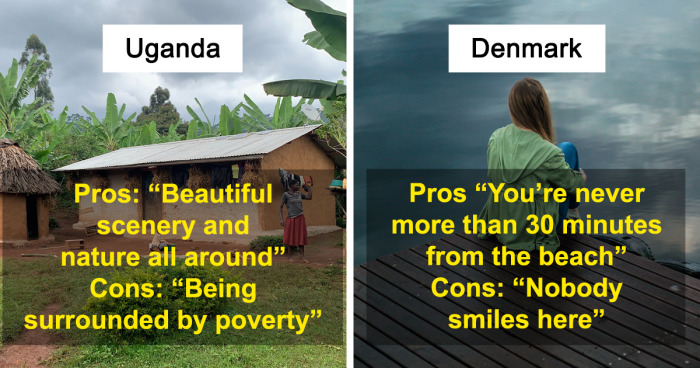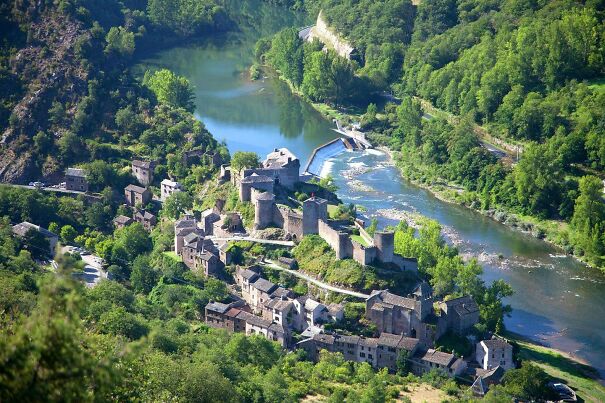Although the precise number of Americans living abroad is unknown, the U.S. Department of State estimates that approximately 9 million U.S. citizens are living abroad.
Moreover, the Social Security Administration noted a 40% increase in the number of retirees drawing their Social Security overseas, according to CNBC report, which says affordable healthcare and better weather are key factors for those retiring abroad.
But for whatever reason Americans decided to move away from their home, it surely comes with a share of pros and cons. This illuminating Ask Reddit thread shed a light on what exactly American expats like and don’t like when living abroad.
This post may include affiliate links.
 Moved to France a year ago
**Pros**
* Healthcare - not just free, but organized. For example if you test positive for COVID, you get what is basically a prescription for a box fo 50 masks for free at the pharmacy and to claim them you just insert your social security card into the machine and it's confirmed and charged to the state. It's beautiful.
* Work culture - this is a big one. In the US I was used to working in the mornings, evenings, the weekend, on vacation. None of that here. Same for lunch. We have a real lunch break here, not eating a sad $15 salad in front of your computer alone.
* The food - I wasn't a bread or baked goods person before moving here. Now I'm almost at a baguette a day. The butter, cheese, wine, cakes, viennoiseries, etc. are so good and so readily available and so *cheap*.
* A leisure culture - sort of related to 2, but slightly different. People really seem to enjoy the simple things and take advantage of their time off. Things like having a long picnic for no particular reason with friends or family is normal. Never did that back home unless it was a *thing* like "ohh let's have a picnic today!". Here it's like "hey it's nice out, want to go eat by the lake?" And an hour later I'm slowly making my way back to my desk.
* Less racism, bigotry, etc. France, and Europe in general, *absolutely* have their problems with this, but the US stands alone in terms of severity and ubiquity.
* Being so central and being able to travel so easily (present situation excluded). Want to go to Geneva for the weekend and do some hiking? Ok, 3 hours on a train for 60 euro and you're there.
* And on that note - the vacation time. I get 7 weeks a year. I don't even know what to do with it all. Plus public holidays and all that. And when you take them you're not asking you're telling. It's a right not a privilege. Love that.
* All the history, architecture, etc. Was walking home one day and thought "huh that's an interesting looking church, wonder what its story is." Looked it up. It was built in the *sixth* century. So f*****g cool.
* Walkable cities with easy to use and cheap public transit
* No hangups about PDA and on a related note, being in a relationship 100% from the get-go. I think this is where the reputation as flirts comes from, but they aren't bouncing around from person to person w***y-nilly. Rather, when you want to go out with someone, you really commit right off the bat, and if it doesn't work, ok it doesn't work, but at least you tried. In the states I see people dating several people at once, always trying to keep options open and always trying to optimize. It looks exhausting.
**Cons**
* Bureaucracy - everything moves very slowly. I feel like I'm in a Kafka novel sometimes.
* No AC - the summer's can be brutal for a few weeks. I'm from Texas and it's much worse here. I'm also kind of a baby in this respect but still.
* I miss BBQ
* Nothing is open early. Even Starbucks is like 8 or 8:30 AM. Super frustrating sometimes.
* Big pay cut in general for anyone coming from the states, especially in tech or finance
* The rental market in Paris in particular is a total s**t show.
I'm sure I'm forgetting stuff but the big ones are there. Overall the pros massively outweigh the cons, especially with all the s**t going on in the states right now. Hard to imagine going back.
Moved to France a year ago
**Pros**
* Healthcare - not just free, but organized. For example if you test positive for COVID, you get what is basically a prescription for a box fo 50 masks for free at the pharmacy and to claim them you just insert your social security card into the machine and it's confirmed and charged to the state. It's beautiful.
* Work culture - this is a big one. In the US I was used to working in the mornings, evenings, the weekend, on vacation. None of that here. Same for lunch. We have a real lunch break here, not eating a sad $15 salad in front of your computer alone.
* The food - I wasn't a bread or baked goods person before moving here. Now I'm almost at a baguette a day. The butter, cheese, wine, cakes, viennoiseries, etc. are so good and so readily available and so *cheap*.
* A leisure culture - sort of related to 2, but slightly different. People really seem to enjoy the simple things and take advantage of their time off. Things like having a long picnic for no particular reason with friends or family is normal. Never did that back home unless it was a *thing* like "ohh let's have a picnic today!". Here it's like "hey it's nice out, want to go eat by the lake?" And an hour later I'm slowly making my way back to my desk.
* Less racism, bigotry, etc. France, and Europe in general, *absolutely* have their problems with this, but the US stands alone in terms of severity and ubiquity.
* Being so central and being able to travel so easily (present situation excluded). Want to go to Geneva for the weekend and do some hiking? Ok, 3 hours on a train for 60 euro and you're there.
* And on that note - the vacation time. I get 7 weeks a year. I don't even know what to do with it all. Plus public holidays and all that. And when you take them you're not asking you're telling. It's a right not a privilege. Love that.
* All the history, architecture, etc. Was walking home one day and thought "huh that's an interesting looking church, wonder what its story is." Looked it up. It was built in the *sixth* century. So f*****g cool.
* Walkable cities with easy to use and cheap public transit
* No hangups about PDA and on a related note, being in a relationship 100% from the get-go. I think this is where the reputation as flirts comes from, but they aren't bouncing around from person to person w***y-nilly. Rather, when you want to go out with someone, you really commit right off the bat, and if it doesn't work, ok it doesn't work, but at least you tried. In the states I see people dating several people at once, always trying to keep options open and always trying to optimize. It looks exhausting.
**Cons**
* Bureaucracy - everything moves very slowly. I feel like I'm in a Kafka novel sometimes.
* No AC - the summer's can be brutal for a few weeks. I'm from Texas and it's much worse here. I'm also kind of a baby in this respect but still.
* I miss BBQ
* Nothing is open early. Even Starbucks is like 8 or 8:30 AM. Super frustrating sometimes.
* Big pay cut in general for anyone coming from the states, especially in tech or finance
* The rental market in Paris in particular is a total s**t show.
I'm sure I'm forgetting stuff but the big ones are there. Overall the pros massively outweigh the cons, especially with all the s**t going on in the states right now. Hard to imagine going back.
"* Nothing is open early. Even Starbucks is like 8 or 8:30 AM." go to local cafés : most of them open at 6 am and close at one o'clock in the morning ! and if you go regularly to the same café that's a great way to get to know the locals !
last summer (2022) where I live in France the temperature was 41 celsius(105 F) I have a portable AC unit but I didn't use it, why ? because my house is very well insulated and a fan was good enough ! AC polutes and uses a lot more electricity !
7 weeks of vacation and doesn't know what to do with it. Are you crazy or what? Give me 7 weeks of vacation. I'd know what to do with it. Believe me!
Note that this is not 7 weeks in a row but 7 weeks in all spread over the whole year.
Load More Replies..."I miss BBQ" sure if you live in Paris or any other city ! travel in rural France and you'll se that many houses have BBQ in their backyards. True there are not many BBQ restaurants because people prefer to do it at home with friends and family, just like in the US actually. also true we don't BBQ as much as in Texas because it's not the " main " food here !
BBQ and grilling on a barbecue are not the same thing. BBQ here refers to smoked meats cooked slowly for a very long time. It's not something people do at home.
Load More Replies...The cons are fairly spot on, but I can tell you that you will get used to not having air conditioning and when you go back to the US, you will suffer from the cold and dryness. And you're feeling the pay cut more because you're in Paris (with the related rental market issues). The same pay outside of Paris and you'll feel rich.
My buddy is attached to the embassy - more money than if he was in the states and a three bd in the 16th... but lots of racism towards poc.
The 16th is full of old people so that doesn't surprise me
Load More Replies...Pay cut is immaterial if your quallity of life is good, which it sounds like. It's not about USD/EU conversion, it's about burgernomics.
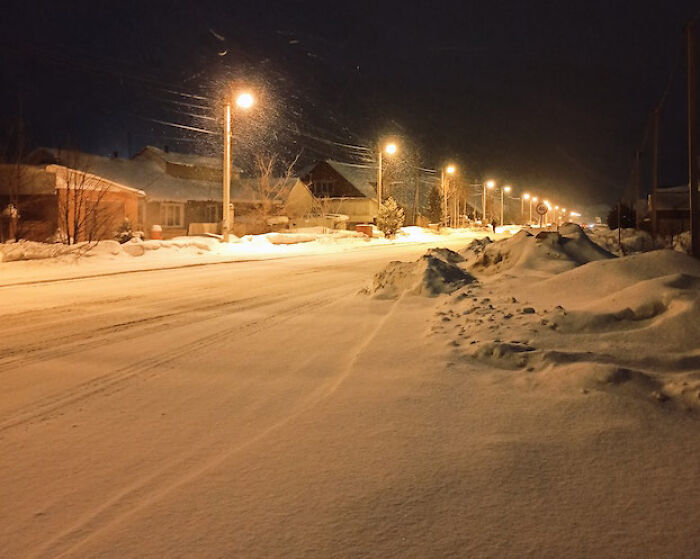 I used to live in Texas, now I live in Sweden since 2015.
Pros:
* Accessible healthcare. Taxes and cost of living are high, but so is the wage. No one gets paid under $14 an hour. Going to the doctor usually costs about 20 bucks, and once you hit $100 per year in healthcare costs you get what's called a free card, and don't have to pay anything else until the next reset. I got my tubes tied a few years ago and it cost me $30.
* Language. 90% of Swedes speak excellent English, especially the younger generations. Some of my colleagues sound American or English. Everyone learns English in school here, and I'm often taken off guard by almost toddlers speaking English to me. On the other hand, this makes learning Swedish extra difficult since everyone hears your accent and wants to practice their English...
* Public transportation! Even way out in the boonies you'll find some kind of bus line, even if it's an hour or so between busses. Exception for the north of Sweden which is a frozen wasteland. I live pretty far out of Stockholm and even at 3 am I can find a bus home. The trains and busses are usually very much on time and if you're late to something because a train was late, they'll compensate you for a cab.
* The nature. There's a very unique thing in Sweden called "allemansrätten" which says that you can camp, wander and forage more or less anywhere you want. One of the only rules is that you can't camp within line of sight of a house or camp in the same spot for two nights on someone's property. The nature is absolutely gorgeous here, and this is one of my favourite things about the country.
* Eco-consciousness. Recycling is deeply ingrained in the culture, and there are recycling stations all over the place. Most people have two bins outside, one for household trash and one for food. People swarm to recycling stations on the weekend to dispose of meticulously sorted trash, and workplaces will scold you if you don't properly sort things. Cars are strictly regulated and we burn trash to fuel cities! Sometimes we even buy trash from other countries since we go through so much.
* Workers rights. People are entitled by law to have a certain amount (5 weeks) of vacation per year, unions are incredibly strong and if you're sick for multiple days, the first day is unpaid (though insurance will pay you for it), and the rest are 80% (I think) of your full pay.
* Parental leave. Parents get 18 months combined time off and receive untaxed money, both of which increase the more children you have.
* Fika! Fika is kind of a cultural coffee break. Most workplaces have 15-30 minute periods where everyone goes to the break room, maybe has some fikabröd (baked goods, often cinnamon buns), and coffee. It's weird if you don't drink coffee or tea. Fika is also a thing outside the workplace and is a good excuse to meet up with a friend and have a snack. After living in the US I feel fika breaks really help with workplace relationships - it gives everyone some time to mingle, be on common ground and bring up work related issues or topics.
* Animal rights. Homeless animals are a real rarity here. There are cat shelters, but most dogs are street dogs imported from other countries and rehomed in Sweden. Dogs are registered and usually insured, and backyard breeding is present but not a problem like in the US. I've worked at many shelters in the states so this fact makes me quite happy!
* Summer! Coming from Texas, summer was always a word that brought dread. Spring and summer in Sweden are glorious - Incredibly fragrant flowers everywhere, everything is green, people have broken out of their winter hibernation and are ecstatic. At midsummer the sun rises at 4 am and sets around 10pm. Even at its darkest, you can kind of see the sun just behind the horizon. The temperature is at its hottest around 34°C (93°F) but is usually 25°C (77°F) or so. This is what I love second most! 😍
Cons:
* Social culture. Sweden was voted one of the most difficult countries for expats to make friends in, which I can definitely attest to. It took me four years to find my crowd. People can seem very cold and unfriendly. Trains are usually totally silent and people zoom about on their commute with headphones plugged in. Once you get to know a Swede, however, they will open up pretty quick and you'll have yourself a good friend. That initial awkward acquaintance phase is just much harder to pass here, and people like their privacy.
* Winter. The cold is an obvious one, but many people don't factor in the darkness of winter. Right now the sun is setting around 4 pm and going up at 7. In the dead of winter, the sun rises around 10 and sets at 3 in the afternoon, so if you have an office job you might not see the sun all day. However as I mentioned above, the incredible summers kind of make up for it.
* Shopping convenience. Very few stores are open 24/7. Some fast food places and gas stations are the exception. If you live in a big city it's not so bad, but in small towns everything shuts down in the early evening. Secondly, there are not really any supercenters like Wal-Mart. If you want something special, you have to order it, and you can't always get everything you want at one store. Shopping can be a real trip and a pain in the a*s if you don't have a car. On the flip side, shipping is very fast within Sweden and you'll usually get anything you order within 2-3 days in Stockholm.
* Housing. Housing is INCREDIBLY expensive in the city. Renting a tiny firsthand apartment in the city can take 10-12 years in the housing queue and there is constant construction everywhere.
* Regulation. This is both a good and bad thing, depending on how you look at it. In Sweden, your personnummer (social security number) is used for everything. Banking, work, memberships, purchases, everything. You can't really live in Sweden without one. There is an app called Bank ID which uses your person number+a code as verification when you use a credit card online or login to anything secure. It is very, very hard to live off the grid here if one wishes.
I might add more later if I think of anything, if you have any questions feel free to ask! :)
I used to live in Texas, now I live in Sweden since 2015.
Pros:
* Accessible healthcare. Taxes and cost of living are high, but so is the wage. No one gets paid under $14 an hour. Going to the doctor usually costs about 20 bucks, and once you hit $100 per year in healthcare costs you get what's called a free card, and don't have to pay anything else until the next reset. I got my tubes tied a few years ago and it cost me $30.
* Language. 90% of Swedes speak excellent English, especially the younger generations. Some of my colleagues sound American or English. Everyone learns English in school here, and I'm often taken off guard by almost toddlers speaking English to me. On the other hand, this makes learning Swedish extra difficult since everyone hears your accent and wants to practice their English...
* Public transportation! Even way out in the boonies you'll find some kind of bus line, even if it's an hour or so between busses. Exception for the north of Sweden which is a frozen wasteland. I live pretty far out of Stockholm and even at 3 am I can find a bus home. The trains and busses are usually very much on time and if you're late to something because a train was late, they'll compensate you for a cab.
* The nature. There's a very unique thing in Sweden called "allemansrätten" which says that you can camp, wander and forage more or less anywhere you want. One of the only rules is that you can't camp within line of sight of a house or camp in the same spot for two nights on someone's property. The nature is absolutely gorgeous here, and this is one of my favourite things about the country.
* Eco-consciousness. Recycling is deeply ingrained in the culture, and there are recycling stations all over the place. Most people have two bins outside, one for household trash and one for food. People swarm to recycling stations on the weekend to dispose of meticulously sorted trash, and workplaces will scold you if you don't properly sort things. Cars are strictly regulated and we burn trash to fuel cities! Sometimes we even buy trash from other countries since we go through so much.
* Workers rights. People are entitled by law to have a certain amount (5 weeks) of vacation per year, unions are incredibly strong and if you're sick for multiple days, the first day is unpaid (though insurance will pay you for it), and the rest are 80% (I think) of your full pay.
* Parental leave. Parents get 18 months combined time off and receive untaxed money, both of which increase the more children you have.
* Fika! Fika is kind of a cultural coffee break. Most workplaces have 15-30 minute periods where everyone goes to the break room, maybe has some fikabröd (baked goods, often cinnamon buns), and coffee. It's weird if you don't drink coffee or tea. Fika is also a thing outside the workplace and is a good excuse to meet up with a friend and have a snack. After living in the US I feel fika breaks really help with workplace relationships - it gives everyone some time to mingle, be on common ground and bring up work related issues or topics.
* Animal rights. Homeless animals are a real rarity here. There are cat shelters, but most dogs are street dogs imported from other countries and rehomed in Sweden. Dogs are registered and usually insured, and backyard breeding is present but not a problem like in the US. I've worked at many shelters in the states so this fact makes me quite happy!
* Summer! Coming from Texas, summer was always a word that brought dread. Spring and summer in Sweden are glorious - Incredibly fragrant flowers everywhere, everything is green, people have broken out of their winter hibernation and are ecstatic. At midsummer the sun rises at 4 am and sets around 10pm. Even at its darkest, you can kind of see the sun just behind the horizon. The temperature is at its hottest around 34°C (93°F) but is usually 25°C (77°F) or so. This is what I love second most! 😍
Cons:
* Social culture. Sweden was voted one of the most difficult countries for expats to make friends in, which I can definitely attest to. It took me four years to find my crowd. People can seem very cold and unfriendly. Trains are usually totally silent and people zoom about on their commute with headphones plugged in. Once you get to know a Swede, however, they will open up pretty quick and you'll have yourself a good friend. That initial awkward acquaintance phase is just much harder to pass here, and people like their privacy.
* Winter. The cold is an obvious one, but many people don't factor in the darkness of winter. Right now the sun is setting around 4 pm and going up at 7. In the dead of winter, the sun rises around 10 and sets at 3 in the afternoon, so if you have an office job you might not see the sun all day. However as I mentioned above, the incredible summers kind of make up for it.
* Shopping convenience. Very few stores are open 24/7. Some fast food places and gas stations are the exception. If you live in a big city it's not so bad, but in small towns everything shuts down in the early evening. Secondly, there are not really any supercenters like Wal-Mart. If you want something special, you have to order it, and you can't always get everything you want at one store. Shopping can be a real trip and a pain in the a*s if you don't have a car. On the flip side, shipping is very fast within Sweden and you'll usually get anything you order within 2-3 days in Stockholm.
* Housing. Housing is INCREDIBLY expensive in the city. Renting a tiny firsthand apartment in the city can take 10-12 years in the housing queue and there is constant construction everywhere.
* Regulation. This is both a good and bad thing, depending on how you look at it. In Sweden, your personnummer (social security number) is used for everything. Banking, work, memberships, purchases, everything. You can't really live in Sweden without one. There is an app called Bank ID which uses your person number+a code as verification when you use a credit card online or login to anything secure. It is very, very hard to live off the grid here if one wishes.
I might add more later if I think of anything, if you have any questions feel free to ask! :)
Sorry but what the actual frak! The north is NOT a frozen wasteland. That’s a very typical comment from people in the south, especially Stockholm. I know bc I’m from the north and live in Stockholm. Do some travelling or just google and don’t believe other people with narrow minds and a love for stereotypes. I wish the subway was quiet. It’s horrible. People talk out loud on their phones, playing music out load. And yes I sound like I’m 80 years old.
I really really love the concept of "allemansrätten" and wish we have it here in Germany too. I think we had it prior but as it always is, some idiots filled with it and we lost this right. I also love the attitude of northern countries (including North Germany) to be cold at first sight but open when your connect. For me, this is some kind of honesty. and expecting quiet peace in public transportation. I hate that today's younger generations don't seem to bother ... Yes, it is a difference if you hear music or other sounds from a phone than two people talking. Other wavelengths and so. Plus you are forced to hear for example music you don't like and can not leave because it's your commute....
Similar to my experience living in Norway. I would add that bureaucracy is near zero. The level of trust is so high that they don't need barriers. All is digitalised, centralised and integrated, so with the bank-id you can access anything, sign anything and pay anything. It's amazing. Driving is also amazing here. Most people respect rules. In general, people follow and respect rules. It makes life much easier when there is predictability and consistency. In general, people trust their government and that make life easier too. But apart for the social integration and inclusion which is difficult, I would dare to say that the health service isn't perfect. If you are dying or have complications, it works perfectly. But if you are sick but not dying....well... take paracetamol or wash with salt water.
 I moved to Denmark ten years ago.
CONS
There are a lot of small little culture shock things I miss about the states - mostly food and convenience and people, and cultural differences. Nobody smiles here, and there’s this social norm called the law of jante that I clash with all the time. https://en.m.wikipedia.org/wiki/Law_of_Jante
It took a long time for me to build up friends and networks. I’ve never had a full time, permanent job while I’ve been here which impacts my ability to get permanent residency. People here speak very good English which has made it harder for me to converse in Danish because when they hear my accent they just talk to me in English no matter what.
PROS
I never have to worry about healthcare. I got a full education (bachelor + masters degree) with full student stipend without having to pay for anything but books. Medicine is cheaper here. I can walk to the grocery store, there are 3 within walking distance of my house. One of them has a full service bakery and butcher. Postal service takes less than a week - often if I order something Monday it arrives by Friday. I can walk anywhere in the city at any time of day and not worry about being bothered. I can bike anywhere in the city and most places it’s easier and faster than the bus. If I need to take the bus it’s inexpensive and most places I go I can be there in 20 minutes. My daughter’s daycare was subsidized by the government and we get the kids check quarterly to offset the expenses of having her. We have lots of easily accessible cultural institutions that are inexpensive- we buy season passes to LEGOLAND and go whenever we want - same with museums and zoos.
Danish food is good and hearty, meat and potatoes with lots of sauce. The bread is fresh and plentiful. There are active social cultures for any sort of activity - sports, gaming, arts and crafts, reading, learning. The ice cream is fantastic and so are the cakes and pastries. Coke here is made with real sugar.
The pet culture is amazingly kind to animals. Dogs can go anywhere people can go as long as the owners look after them and they stick to approved areas and don’t cause trouble. It’s not unusual for people to take their dog to the zoos or LEGOLAND or even to work. My first day here I got pounced on by a puppy who loved my shoes. A day later a German shepherd ran up to me on the beach and gave me his ball to toss.
You’re never more than 30 minutes from the beach. The water is cold but it’s nice in summer. During summer everyone is outside enjoying the weather. During the winter everyone is inside enjoying each other.
Everyone has five weeks vacation, guaranteed. Most people take these around Christmas and over the summer. There are lots of paid government holidays. There are strong worker protections and the average work week is 37 hours with most people getting off early on Friday. If you’re on unemployment it lasts for two years, plus the severance from your last job.
I’m sure there’s more, but it’s time for dinner.
I moved to Denmark ten years ago.
CONS
There are a lot of small little culture shock things I miss about the states - mostly food and convenience and people, and cultural differences. Nobody smiles here, and there’s this social norm called the law of jante that I clash with all the time. https://en.m.wikipedia.org/wiki/Law_of_Jante
It took a long time for me to build up friends and networks. I’ve never had a full time, permanent job while I’ve been here which impacts my ability to get permanent residency. People here speak very good English which has made it harder for me to converse in Danish because when they hear my accent they just talk to me in English no matter what.
PROS
I never have to worry about healthcare. I got a full education (bachelor + masters degree) with full student stipend without having to pay for anything but books. Medicine is cheaper here. I can walk to the grocery store, there are 3 within walking distance of my house. One of them has a full service bakery and butcher. Postal service takes less than a week - often if I order something Monday it arrives by Friday. I can walk anywhere in the city at any time of day and not worry about being bothered. I can bike anywhere in the city and most places it’s easier and faster than the bus. If I need to take the bus it’s inexpensive and most places I go I can be there in 20 minutes. My daughter’s daycare was subsidized by the government and we get the kids check quarterly to offset the expenses of having her. We have lots of easily accessible cultural institutions that are inexpensive- we buy season passes to LEGOLAND and go whenever we want - same with museums and zoos.
Danish food is good and hearty, meat and potatoes with lots of sauce. The bread is fresh and plentiful. There are active social cultures for any sort of activity - sports, gaming, arts and crafts, reading, learning. The ice cream is fantastic and so are the cakes and pastries. Coke here is made with real sugar.
The pet culture is amazingly kind to animals. Dogs can go anywhere people can go as long as the owners look after them and they stick to approved areas and don’t cause trouble. It’s not unusual for people to take their dog to the zoos or LEGOLAND or even to work. My first day here I got pounced on by a puppy who loved my shoes. A day later a German shepherd ran up to me on the beach and gave me his ball to toss.
You’re never more than 30 minutes from the beach. The water is cold but it’s nice in summer. During summer everyone is outside enjoying the weather. During the winter everyone is inside enjoying each other.
Everyone has five weeks vacation, guaranteed. Most people take these around Christmas and over the summer. There are lots of paid government holidays. There are strong worker protections and the average work week is 37 hours with most people getting off early on Friday. If you’re on unemployment it lasts for two years, plus the severance from your last job.
I’m sure there’s more, but it’s time for dinner.
All sounds great but the government taking 56% of your earnings is insane!!!!
Smile, and the world smiles back at you - also in Denmark ;-)
There are more than 8 million expats today living overseas, and the reasons can be as many and as varied as the number of people who have left the US. Experts argue that the growing number of Americans living overseas may come down to a couple of factors.
First is the rapid rise of work-away-from-the-office and the impact of covid, which kicked that work-away-from-the office tendency into overdrive. Digital nomads and remote workers are now enjoying their lives traveling around the world without being attached to their offices.
Moreover, as 1 in 6 Americans are now pushed into a position of “financially struggling” (World Economic Forum), many people move away from the US for economic reasons. Think of more affordable healthcare, lower taxes and improved education among them. These are the findings of a recent national survey conducted by Harris Poll.
 Canada.
Pros:
Less violent crime per capita. Health insurance/care costs less in taxes than the cheapest private plan I ever had in the US. One and Two dollar coins are fun. Better transit than the US cities I've lived in. Poutine is delicious.
Cons:
Canada.
Pros:
Less violent crime per capita. Health insurance/care costs less in taxes than the cheapest private plan I ever had in the US. One and Two dollar coins are fun. Better transit than the US cities I've lived in. Poutine is delicious.
Cons:
Cons: Brutal winter 😂 I don't know but as someone who has lived in Canada for almost 5 years I have gotten used to it, and I actually do like it. (Except from the snow puddles in early spring. )
I agree with Canadian Zebra. Depends on where you are. I grew up in Ottawa (70s-90s) and that was a brutal winter (started mid-Sept to end of April and 3-4 months of sub -40C weather). I moved to Toronto (and later NYC and LA) and recently moved to Halifax. Winter didn't start until mid-Jan and has been mostly around -1 to -3. We get a day or two of snow, then it melts, warms and repeats.
Load More Replies...Cons ... the conservative part of Canada. That's the only con (both meanings of the word)
TBH, they are really the Reform Party. Would never vote for them. They are a far cry from the Progressive Conservatives: who, in the past were reasonable, and occasionally got my vote.
Load More Replies...Sheesh. Anyone who lived in the upper US states knows that their winters can be - and often are - as brutal as Canadian winters or more so. Plus most of the affected Canadian provinces have more snow-removal and road-salting equipment, insurance breaks for having winter tires... Look at the snowstorm in Buffalo earlier this year that killed 30+. Right across the border in Niagara, 20 minutes away, it was just as awful - without the death toll.
Pros (when I came from Northern Ireland): no bomb threats at work Cons: healthcare was better at home. Transit was better, and cheaper. Serious lack of a good pasty supper. Chocolate is awful in Canada. The hockey culture. Even in summer when there is no hockey the first 6 pages of the sports pages were hockey.
yeah... I've been there bro. No thanks. I thought the winters in Michigan were brutal...
Biggest con for me is that it's just too far from everyone I know. I would love to live in Australia or New Zealand. Both countries are just fabulous. But I would never be able to see my family. Most of whom I could live without, but my oldest child is another story.
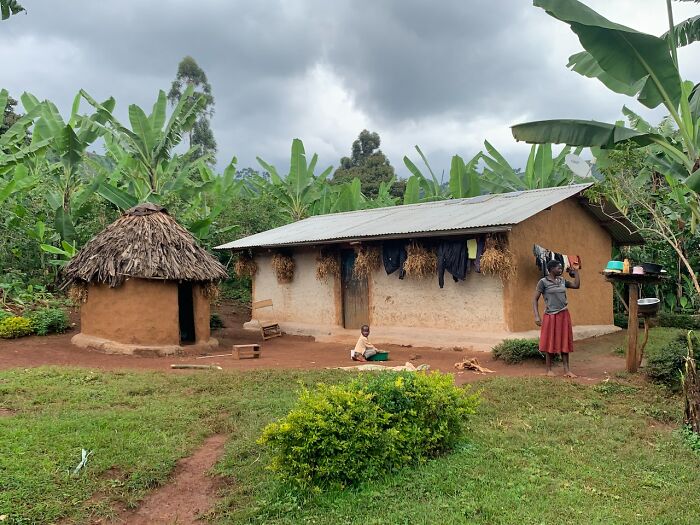 Moved to Uganda 8 years ago.
Pros:
* Unless you need fancy stuff from the US/Europe, all the basics are so cheap. Food, medicine, clothes, etc.
* People are generally friendly, welcoming, and helpful. They are very outgoing, they love kids, they are often willing to go quite out of their way to give directions or assistance.
* Beautiful scenery and nature all around. I drive through a game reserve to get to town.
* Labour is cheap, especially in the service industry. Motorcycle taxi across town is maybe around a dollar. You can always hire someone to carry your groceries/luggage/bags of cement for a minimal cost and people are happy to have the work.
* You can bargain for everything. Literally everything.
Cons:
* Petty theft is pretty much a given. I had a guy steal my shovel while I was resting from trying to dig a vehicle out of the mud. People will steal your phone out of your hand if you are talking in your car in traffic.
* The tyranny of petty bureaucrats. Submitting a complaint to the district land board recently required 13 CCs to various people, all paper, all needing to be delivered by hand. The land board doesn't have sitting fees, so they can't do anything until the gov't comes through or I decide to pay them. At a previous meeting, our issue was discussed but not resolved, but the chairman of the board would not even sign a copy of the minutes unless I paid him a bribe. Meter maids in town recently forged an unpaid parking ticket and booted my vehicle. It took an hour of hard arguing and a bribe to get it unbooted.
* Always an outsider. No matter how well I can learn how to speak and act, I'm white, and I will always be an object of attention wherever I go. It doesn't bug me too much, but it's tough on the kids sometimes.
* Being surrounded by poverty. I live in one of the poorest areas in the country, and there is basically a line of beggars at our door every day. It's really hard to know if and when to help. A dollar goes a long way here, but, speaking from experience, it's very easy to get people into a cycle of dependency which rips apart the social fabric in our community.
Moved to Uganda 8 years ago.
Pros:
* Unless you need fancy stuff from the US/Europe, all the basics are so cheap. Food, medicine, clothes, etc.
* People are generally friendly, welcoming, and helpful. They are very outgoing, they love kids, they are often willing to go quite out of their way to give directions or assistance.
* Beautiful scenery and nature all around. I drive through a game reserve to get to town.
* Labour is cheap, especially in the service industry. Motorcycle taxi across town is maybe around a dollar. You can always hire someone to carry your groceries/luggage/bags of cement for a minimal cost and people are happy to have the work.
* You can bargain for everything. Literally everything.
Cons:
* Petty theft is pretty much a given. I had a guy steal my shovel while I was resting from trying to dig a vehicle out of the mud. People will steal your phone out of your hand if you are talking in your car in traffic.
* The tyranny of petty bureaucrats. Submitting a complaint to the district land board recently required 13 CCs to various people, all paper, all needing to be delivered by hand. The land board doesn't have sitting fees, so they can't do anything until the gov't comes through or I decide to pay them. At a previous meeting, our issue was discussed but not resolved, but the chairman of the board would not even sign a copy of the minutes unless I paid him a bribe. Meter maids in town recently forged an unpaid parking ticket and booted my vehicle. It took an hour of hard arguing and a bribe to get it unbooted.
* Always an outsider. No matter how well I can learn how to speak and act, I'm white, and I will always be an object of attention wherever I go. It doesn't bug me too much, but it's tough on the kids sometimes.
* Being surrounded by poverty. I live in one of the poorest areas in the country, and there is basically a line of beggars at our door every day. It's really hard to know if and when to help. A dollar goes a long way here, but, speaking from experience, it's very easy to get people into a cycle of dependency which rips apart the social fabric in our community.
There isn't a republican in sight, I suppose. /jk
Load More Replies...From the first few points, I could tell this is third world country stuff. I used to hear si miliar things about prices in Jamaica but I heard they’re going up, and some of these are similar in Liberia too.
For some reason I don't think I'll retire there. And the insects, and bugs, are gigantic. But I'm happy that you seem to enjoy it, and that's all that really matters.
So exhausting seeing photos of mud huts as africa. Here's Kampala. https://www.murchisonfallsparkuganda.com/information/kampala-capital-city/
 South Korea. I'm a recent graduate teaching English here.
Pros:
I can find afford more than 1 pair of glasses
I can afford to go to the dentist
I can afford to get checkups regularly
I walk a LOT more. (10k to 15k steps just on work days)
Busses and subways are very clean
Quick and easy to get to another town/city
Cons:
My Korean is bad so I get frustrated at times. Also hard to make friends because of my lack of Korean.
I miss my dad
I miss: fried cheese curds, Culver's and Chick-fil-A
Korean work culture is stupid (50 hour work weeks are the norm)
Korean educational norms are stupid. I'm so upset when I hear my students stay up till 1am doing homework.. they're 11
South Korea. I'm a recent graduate teaching English here.
Pros:
I can find afford more than 1 pair of glasses
I can afford to go to the dentist
I can afford to get checkups regularly
I walk a LOT more. (10k to 15k steps just on work days)
Busses and subways are very clean
Quick and easy to get to another town/city
Cons:
My Korean is bad so I get frustrated at times. Also hard to make friends because of my lack of Korean.
I miss my dad
I miss: fried cheese curds, Culver's and Chick-fil-A
Korean work culture is stupid (50 hour work weeks are the norm)
Korean educational norms are stupid. I'm so upset when I hear my students stay up till 1am doing homework.. they're 11
OP is a Midwesterner, likely from Wisconsin or Illinois. "Cheese curds"....
Yeah! I was thinking that too. Cheese curds is very specific to Wisconsin but they describe the cheese curds as fried. They are, but Wisconsinites don't ask for fried cheese curds, they just ask for cheese curds. So, maybe Illinois?
Load More Replies...Sounds like hell, no thanks. Do not want to be a slave to capital.
 I moved to Germany.
Pros:
There is lots more to experience here due to the proximity of different cultures and the very diverse immigrants. I have learned a lot about other languages, foods, and cultures that I never had exposure to in the US (or at least not where I come from, the Midwest.)
Worker's protections. 25-30 days vacation is standard, salaried workers often still get overtime, both parents get a comfortable time off for each child born, it is easier to defend yourself in the case of unrightful firing, unemployment and underemployment protections are much fairer and more consistent (this was especially important in the Covid economic crisis, I may not even have a job if I were still i the US)
More liberal life attitude: This isn't just politically, although that is also nice, but I find in general people here are more open and understanding and empathetic. There is a lot less "us vs. them", and I feel like I can just be myself without people treating me like a freak for not being religeous, dressing a certain way, having certain hobbies, etc.
Mountains are nearby! Skiing and hiking and trail running are all much more accessible than they ever were back home.
Cons:
Language barrier is obviously an obstacle, and it can be quite frustrating at first not being able to communicate yourself effectively. (After about a year it was not a problem for me anymore though)
Income is generally a bit lower and non-essential goods a bit more expensive.
There is less wild nature, and some things like tent trekking are more limited.
Edit: Can't believe I forgot to mention these, but **bread** here is outstanding and there are bakeries on every street and in most grocery store lobbies. And **public transit** is also great - in a big city having a car is really optional, and designated drivers are not necessary when going out.
I moved to Germany.
Pros:
There is lots more to experience here due to the proximity of different cultures and the very diverse immigrants. I have learned a lot about other languages, foods, and cultures that I never had exposure to in the US (or at least not where I come from, the Midwest.)
Worker's protections. 25-30 days vacation is standard, salaried workers often still get overtime, both parents get a comfortable time off for each child born, it is easier to defend yourself in the case of unrightful firing, unemployment and underemployment protections are much fairer and more consistent (this was especially important in the Covid economic crisis, I may not even have a job if I were still i the US)
More liberal life attitude: This isn't just politically, although that is also nice, but I find in general people here are more open and understanding and empathetic. There is a lot less "us vs. them", and I feel like I can just be myself without people treating me like a freak for not being religeous, dressing a certain way, having certain hobbies, etc.
Mountains are nearby! Skiing and hiking and trail running are all much more accessible than they ever were back home.
Cons:
Language barrier is obviously an obstacle, and it can be quite frustrating at first not being able to communicate yourself effectively. (After about a year it was not a problem for me anymore though)
Income is generally a bit lower and non-essential goods a bit more expensive.
There is less wild nature, and some things like tent trekking are more limited.
Edit: Can't believe I forgot to mention these, but **bread** here is outstanding and there are bakeries on every street and in most grocery store lobbies. And **public transit** is also great - in a big city having a car is really optional, and designated drivers are not necessary when going out.
I've noticed this trend, and am also curious about the differences. Having not yet been out of North America, my experience is that you can find good bread, but it requires a bit of a hunt. The most common kind in supermarkets makes a better biodegradable sponge than a sandwich. And if folks are saying even our good bread isn't that good, I *really* need to try this amazing European bread!
Load More Replies...Sorry, but Germany also has a better attitude. You are not your work, so no one will ask what you do for a living. And there's no body-shaming. If you complain about that fat naked old guy at the park, the problem is YOU.
Bread, beer, chocolate, meat... I think Germany is an underestimated food country
Income is a bit liwer, because you pay higher taxes, health care, long term insurance, unemployment insurance, retirement insurance a.m.m. So in the end you get more for your money.
When I lived the in 1983, it was so clean and breathtakingly beautiful. Driving from Ramstien, my brand new husband ( now thoroughly ex) needed a nap and pulled up in a clearing to do so. No buildings or anything like that but incredibly long lush grass filled the clearing. When he woke up, I told him that if he would build a grass shack I’d live right there.
Yes, designated drivers ARE necessary. There are too many folks lost to drunk driving and the consequences
You know what's even safer than having a designated driver? Not bringing a car in the first place, which is pretty convenient in Germany because of public transport.
Load More Replies...Bored Panda reached out to Redditor Zack1018 who moved to Germany from the Midwest and saw a lot of pros in his decision. “There is lots more to experience here due to the proximity of different cultures and the very diverse immigrants. I have learned a lot about other languages, foods, and cultures that I never had exposure to in the US,” he shared.
The American expat told us that there were indeed a few culture shocks, but “they were mostly minor.” “Things like businesses being closed on Sunday, and nudity in saunas.”
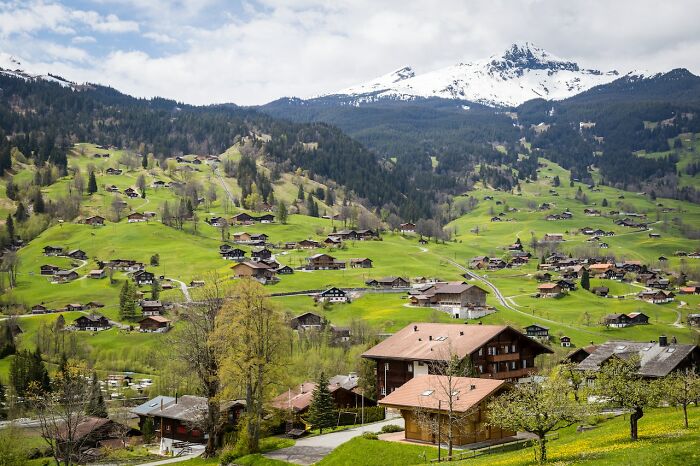 Switzerland.
Pros:
* Very beautiful,
* hiking trails everywhere,
* excellent fast and reliable public transportation, goes everywhere, usually extremely punctual
* Everything is very clean
* Good pay, high salaries
* Pretty fast internet
* Central location, travel to other countries is fast (normally, except COVID)
* Good healthcare
* Heated floors
* Low crime rate
Cons:
* Expensive
* Variety of food and shopping not as varied as the US (But travel to other countries is fast)
* Driving behavior is not at all as relaxed as in the US
* Making close friends with locals is harder (But there's LOTS of friendly expats)
* Dreary foggy in many areas for most of the winter
* Expensive
Switzerland.
Pros:
* Very beautiful,
* hiking trails everywhere,
* excellent fast and reliable public transportation, goes everywhere, usually extremely punctual
* Everything is very clean
* Good pay, high salaries
* Pretty fast internet
* Central location, travel to other countries is fast (normally, except COVID)
* Good healthcare
* Heated floors
* Low crime rate
Cons:
* Expensive
* Variety of food and shopping not as varied as the US (But travel to other countries is fast)
* Driving behavior is not at all as relaxed as in the US
* Making close friends with locals is harder (But there's LOTS of friendly expats)
* Dreary foggy in many areas for most of the winter
* Expensive
Hi, I am swiss and what you say is pretty accurate, just have one question regarding the driving? What do you mean by not as relaxed ^^ ? i'm curious because the french say we drive like snails and are very slow..
That raised an eyebrow when I read it too.. Trying to imagine where in the US the driving might be described as "relaxed" ....
Load More Replies...I’ve traveled to Switzerland a lot for work & indeed, expensive it is, but part of that is due to the incredibly high quality of everything there. There is a serious preponderance of luxury goods, & everything that’s not super high-end is just…really nice. There’s no cruddy Wal-Mart garbage anywhere.
Been in CH for 20+ years, mostly agree, but I'm not sure about the driving, overall pretty good, if a little a**l about rules, IMO. Then again, compare New Jersey with San Francisco to see how different it can be within the US. And the foggy winter is just in the low-lying major cities, all of which are less than an hour from the mountains - just get on a train up into the sunshine.
Got killing road rage here, and you say it’s less relaxed? Not to mention the fact that so many people here appear to think the highways are formula one racing, NASCAR or rally car. Get outta my way, I drank too much, I need to get to my job, appointment to have my nails done, to my wedding or my father’s funeral.
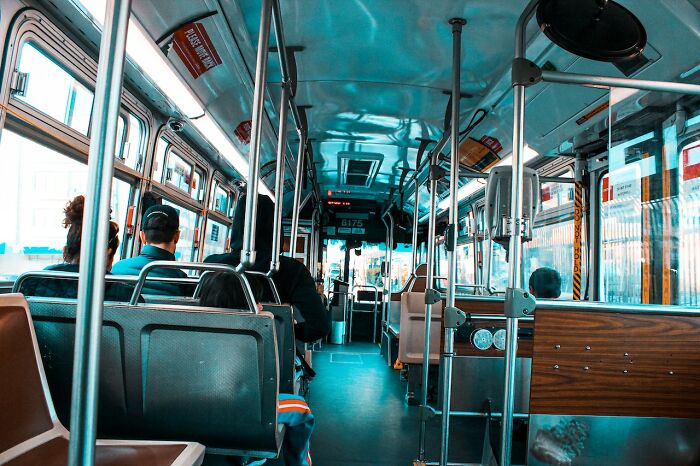 Living in the Netherlands nearly 11 years.
In no particular order...
**Pros:**
-Good public transportation, both in cities, throughout the country, as well as to other European countires.
-Affordable Healthcare
-Affordable cost of living (city dependent, of course)
-Decent wage
-Overall more financial and social stability
-Here in NL I don't need a car
-More financial and social equality
-Nightlife and party life is amazing. Much more underground culture here than in the States
**Cons:**
-Far from family and friends
-In the beginning it was hard to integrate (I took me like 5 years to really learn the language, then everything was OK).
-More hierarchy in professional life
EDIT: pro and con. filing your taxes here is super easy, but complicated to file as US individual living in a foreign country
Living in the Netherlands nearly 11 years.
In no particular order...
**Pros:**
-Good public transportation, both in cities, throughout the country, as well as to other European countires.
-Affordable Healthcare
-Affordable cost of living (city dependent, of course)
-Decent wage
-Overall more financial and social stability
-Here in NL I don't need a car
-More financial and social equality
-Nightlife and party life is amazing. Much more underground culture here than in the States
**Cons:**
-Far from family and friends
-In the beginning it was hard to integrate (I took me like 5 years to really learn the language, then everything was OK).
-More hierarchy in professional life
EDIT: pro and con. filing your taxes here is super easy, but complicated to file as US individual living in a foreign country
meh, dutch is easy to learn though. It's basically very similar to english with an accent. (I understand/write both, speak not so great).
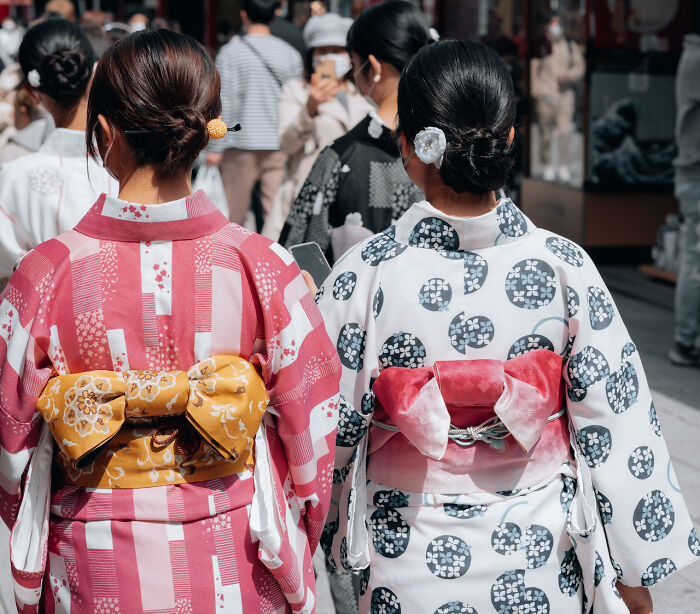 Moved to Japan in 2018.
Pros: Affordable healthcare, healthier and more active lifestyle due to walking and running for the train, sushi, people are polite and helpful if you need help, lowish cost of living, always something to do, even if you live in the countryside. Living in Kansai region means easy access to cities, historical areas, and awesome nature scenery to hike in. Vending machines on every block is a godsend in the summer heat with cold drinks for a dollar.
Cons: Creepy other foreigners (had a guy from NZ try to kiss me at a club and tried to make me touch his bare chest), creepy Japanese people exist too, many people running to Japan thinking it's like anime, COVID support could've been better and not enough testing, earthquakes, typhoons, murder hornets, some aspects are too militaristic, people are almost too passive sometimes.
All in all, I love living in Japan and I have no regrets.
Moved to Japan in 2018.
Pros: Affordable healthcare, healthier and more active lifestyle due to walking and running for the train, sushi, people are polite and helpful if you need help, lowish cost of living, always something to do, even if you live in the countryside. Living in Kansai region means easy access to cities, historical areas, and awesome nature scenery to hike in. Vending machines on every block is a godsend in the summer heat with cold drinks for a dollar.
Cons: Creepy other foreigners (had a guy from NZ try to kiss me at a club and tried to make me touch his bare chest), creepy Japanese people exist too, many people running to Japan thinking it's like anime, COVID support could've been better and not enough testing, earthquakes, typhoons, murder hornets, some aspects are too militaristic, people are almost too passive sometimes.
All in all, I love living in Japan and I have no regrets.
I’ve also heard that people in Japan can be kinda discriminatory towards white people. Might be wrong on that tho!
The Youtube Channel "Ask Shogo" is a wonderful resource for learning more about Japanese culture. Shogo is a Japanese native who lived in the United States for an extended period and then moved back to Japan where he currently lives with his wife and children. He provides a very detailed analysis of life in Japan and does not gloss anything over-- he presents EVERYTHING about his country from the good to the bad. He has a wonderful video that covers xenophobia in Japan and how difficult it can be for an expat to acclimate to life in Japan.
Load More Replies...Please don't think the average NZ male is a creep. He must be the exception to the rule as really they are great guys
I read this in a NZ accent "greet go-eyes" 😅(Canadian English speaker here)
Load More Replies...Moreover, the language barrier was by far the biggest adjustment for Zack. “Being able to communicate my thoughts effortlessly was something I had taken for granted. I often felt embarrassed or confused while speaking German, and it was mentally exhausting to spend a whole day using a non-native language,” he said.
Having said that, the Redditor said that he misses deep dish pizza and good Mexican food, and some snacks. “I also miss being able to watch my teams play sports, due to the time change a lot of those games are very late here.”
When asked whether he ever regrets moving away from the US, Zack told us that he doesn’t. “I am very happy to have lived here and learned so much about myself and about Germany. I do sometimes think about moving back to be closer to my family, but I don't have any plans to in the immediate future,” he concluded.
 Moved to Australia
Pros: Universal healthcare, preferential voting, no community transmission of COVID in my state for more than a month, very generous legally mandated annual leave and long service leave for permanent employees.
Cons: Its hot, like super duper hot. We keep changing leaders as often as we change our socks. I keep getting geo-blocked when I try to look at cool things on the internet (yes I know VPNs exist). Video games cost $100. I once found a big spider in my bra when I went to put it on and I once found a venomous snake in my bathroom at 5am when I had a sleepy pee.
Edit: someone asked to include how difficult it was to immigrate. For me it was relatively easy but that is due to timing more than anything. I married an Australian which made things a lot easier. However I have heard that the process is a lot longer and more arduous than when I did it more than a decade ago. I paid a decent chunk of $$ and filled in some forms about me and provided proof of our ongoing relationship (I'm not a mail order bride I promise). I can tell you that the interviews to prove our relationship was stressful, and equally stressful was waking up every morning thinking that the decision regarding if I could live with the person I love is in the hands of a stranger and not knowing when that decision would be made.
Moved to Australia
Pros: Universal healthcare, preferential voting, no community transmission of COVID in my state for more than a month, very generous legally mandated annual leave and long service leave for permanent employees.
Cons: Its hot, like super duper hot. We keep changing leaders as often as we change our socks. I keep getting geo-blocked when I try to look at cool things on the internet (yes I know VPNs exist). Video games cost $100. I once found a big spider in my bra when I went to put it on and I once found a venomous snake in my bathroom at 5am when I had a sleepy pee.
Edit: someone asked to include how difficult it was to immigrate. For me it was relatively easy but that is due to timing more than anything. I married an Australian which made things a lot easier. However I have heard that the process is a lot longer and more arduous than when I did it more than a decade ago. I paid a decent chunk of $$ and filled in some forms about me and provided proof of our ongoing relationship (I'm not a mail order bride I promise). I can tell you that the interviews to prove our relationship was stressful, and equally stressful was waking up every morning thinking that the decision regarding if I could live with the person I love is in the hands of a stranger and not knowing when that decision would be made.
Yes our universal health care is amazing our home doctor service is great we call a number and a doctor come to the door later, the snakes spiders and other animals you get used too. The heat is bad when it gets over 32 degrees Celsius but maybe about half of Australians can handle anything under relatively well. For me 20 degrees and under is actually cold. But also I love leaving the house and there’s a kangaroo up the street, or when you go camping somtimes there’s a platypus in the creek. The animals and nature are amazing out unique animals, from around where I live you go 100km in each direction and you will end up in the ocean one way you’ll end up in a rainforest and another the desert and more. It’s an amazing place
Anything under 20°C and I'm in a jumper and trackies. Most our "scary" animals can be sorted with a thong and we have amazing places rich in culture. Where I live has sites as significant as Uluru in Aboriginal Culture and the bush is littered with Sacred sites and carvings.
Load More Replies...Good that they mention preferential voting. It means that smaller parties can have a voice in parliament whereas in first-past-the-post electoral systems they would struggle to get any seats. We saw that in the last federal election where unaffiliated candidates who were running on issues such as climate change (the so-called "teal independents") were able to gain seats at the expense of the major parties
Relationship visas are some of the most expensive. Skilled migrant visas are pretty straight forward, still a bit pricey. New Zealand has a much lower cost and wider skilled migrant scheme (plus you can bring your partner and they can’t get a temporary worker visa at a very low cost).
Also pros: great coffee and food just generally way better (and no high fructose corn syrup in drinks), better food health regulations. Cons: Being half the planet away from everyone and everything and costing days and bank accounts to fly anywhere to visit. Housing market out of control so that renters are becoming homeless, and cost of living out of control.. Although frankly Air BNBs have a huge negative impact on rental housing availability.
Glad yo mentioned some of the many things that kill you !!! (I have a theory, that nature put most of the things that can kill you in Australia, to more or less free up other places where people can lead a reasonably safe life, where you can put your shoes on without worrying about losing a few toes! I’m not sure nature ever intended for people to live there !)
 England.
Pros:
- Not America
- Train ride to Paris
Cons:
- Boris Johnson
- Brexit
England.
Pros:
- Not America
- Train ride to Paris
Cons:
- Boris Johnson
- Brexit
That's how you know they have integrated completely into our culture
Load More Replies...Brexit is an absolute s**t show. Not one single benefit to it. Lets not forget Boris was in remain camp until he saw that switching sides would be a boost to him.
I am very confused by British politics. The Tories are an absolute disaster, but keep winning elections. Do you guys have the same kind of Gerrymandering that exists in the US?
Load More Replies...Despite my user name, I'm also an American citizen - Canadian-American dual citizen, but born and raised in Canada - and I lived and worked in the US for 7 years before moving to the UK. Biggest pro over the US *and* Canada: the amount of paid annual leave. Between my annual leave allowance, bank holidays, and my organization's closure periods, I get 8 weeks of paid vacation per year. I agree with the cons above, though - I was looking forward to getting my British citizenship so I could be an EU citizen. Now, I am not bothering with because, as a Commonwealth resident of the UK, I have the same rights as a British citizen other than not being able to leave the country for more than two years at a time.
Total disaster mate. Supermarket shelves empty everywhere, government doing the usual Tory thing of blaming everything on immigration instead of admitting that they couldn't run a whelk stall. Typical Conservative thing: stupid idea, poorly executed.
Load More Replies...Would just add Truss and Sunak and the whole Tory govt to the list.
Load More Replies...I truly wanted to visit my family in the United Kingdom this year (I have family in both the United Kingdom and United States) as I'm currently living and working in the United States. However, they recommended not to come this year as everything is in a state of chaotic flux due to Brexit and people are supposedly not in the highest of spirits.
Christ it’s not that bad! 😂 And I say this as a staunch Remainer (I hate Brexit!). But you can come and visit, nothing catastrophic’s going to happen to you! Just maybe you won’t have tomatoes in your salad 😂
Load More Replies...Having lived in the UK and not being a Brit, I would say: Pros: cute old buildings; nice clean countryside; lots of cultural stuff/activities; traditional pub food is great (it's the sidewalk cafés that arent); familiar cultural peculiarities (we were released from the EMPIRE in 1961); Cons: hard to find work; lots of thugs loitering around in bigger cities; ...and obviously: the weather. Urgh, drizzle drizzle.
 Moved to NZ in 2008. Got permanent residency in 2013 and became a citizen in 2018.
Pros:
It’s far away from everywhere else. It’s been like having a balcony seat from which to watch, in relative calm and safety, the chaos of the past decade.
The people are genuinely friendly for the most part, and the massive political division that defines so much of the Western world has yet to take root here.
Healthcare costs as much as it should in a civilised first world nation. In other words, I won’t go f*****g bankrupt if I stub my toe. Eight years ago I had a motorcycle accident that involved an overnight stay in hospital. My total bill: $0.
Everything you’ve seen or heard about how pretty the scenery is here is both completely true and vastly understated. Seriously, there are bits of this country that look *otherworldly*. Even the “ugly” parts of the country are no more than a half hour’s drive from something spectacular, and no part of the country is more than two hours away from the ocean.
No community transmission of COVID, and while our response to the pandemic hasn’t been perfect by any means, the government has been extremely transparent and communicative in its approach and has kept the overall impact quite low, all things considered.
No Trump or Trump-style politics. Our current government is centrist by NZ standards but would probably be classified as “radical left socialism” by the sort of Americans who’d vote for Trump.
It’s safe, sane, and *quiet*.
Cons:
It’s far away from everywhere else. In pre-COVID times, when it was still possible to see the rest of the world, you’d be looking at a minimum of 3 hours and $500 to fly to Australia, 12 hours and $2000 to the States, and a full day and god only knows how much to fly to Europe. Shipping costs are f*****g insane; often it’s not even worth trying to import something from abroad. Shipping *times* are also stupidly long; if you’re used to the next-day Amazon Prime-style shopping experience, then brace yourself for some serious disappointment.
It is *f**k off expensive* to live here. Housing costs are the biggest shocker; rents have risen something like 300% since I moved here, and I have given up on ever owning a house since half a million bucks won’t even get you a shack in a paddock where I live.
Salaries are much lower. If you work in an IT/comms overlap field like I do, prepare to make half of what you’d make in the States.
The two-punch combo of higher cost of living and lower salaries means that a typical American will have to seriously re-adjust their expectations when they move here. If you’re the kind of American who needs a new car every three years and the newest iPhone every September, you will not enjoy living here.
The drivers in this country are among the worst in the world, with roads to match. Rather than focus on roading improvements and/or better driver education, the government and police instead focus solely on increasingly draconian enforcement of speed limits above all other considerations. Basically it means you’re at serious risk every time you drive anywhere because of how completely s**t the drivers and roads are, and god help you if you do 110 in a 100 zone.
Overall, while NZ isn’t the paradise on Earth that a lot of Americans seem to think it is (until they try to live here), it is an incredibly nice place to be, and I have never once had cause to regret moving here.
Moved to NZ in 2008. Got permanent residency in 2013 and became a citizen in 2018.
Pros:
It’s far away from everywhere else. It’s been like having a balcony seat from which to watch, in relative calm and safety, the chaos of the past decade.
The people are genuinely friendly for the most part, and the massive political division that defines so much of the Western world has yet to take root here.
Healthcare costs as much as it should in a civilised first world nation. In other words, I won’t go f*****g bankrupt if I stub my toe. Eight years ago I had a motorcycle accident that involved an overnight stay in hospital. My total bill: $0.
Everything you’ve seen or heard about how pretty the scenery is here is both completely true and vastly understated. Seriously, there are bits of this country that look *otherworldly*. Even the “ugly” parts of the country are no more than a half hour’s drive from something spectacular, and no part of the country is more than two hours away from the ocean.
No community transmission of COVID, and while our response to the pandemic hasn’t been perfect by any means, the government has been extremely transparent and communicative in its approach and has kept the overall impact quite low, all things considered.
No Trump or Trump-style politics. Our current government is centrist by NZ standards but would probably be classified as “radical left socialism” by the sort of Americans who’d vote for Trump.
It’s safe, sane, and *quiet*.
Cons:
It’s far away from everywhere else. In pre-COVID times, when it was still possible to see the rest of the world, you’d be looking at a minimum of 3 hours and $500 to fly to Australia, 12 hours and $2000 to the States, and a full day and god only knows how much to fly to Europe. Shipping costs are f*****g insane; often it’s not even worth trying to import something from abroad. Shipping *times* are also stupidly long; if you’re used to the next-day Amazon Prime-style shopping experience, then brace yourself for some serious disappointment.
It is *f**k off expensive* to live here. Housing costs are the biggest shocker; rents have risen something like 300% since I moved here, and I have given up on ever owning a house since half a million bucks won’t even get you a shack in a paddock where I live.
Salaries are much lower. If you work in an IT/comms overlap field like I do, prepare to make half of what you’d make in the States.
The two-punch combo of higher cost of living and lower salaries means that a typical American will have to seriously re-adjust their expectations when they move here. If you’re the kind of American who needs a new car every three years and the newest iPhone every September, you will not enjoy living here.
The drivers in this country are among the worst in the world, with roads to match. Rather than focus on roading improvements and/or better driver education, the government and police instead focus solely on increasingly draconian enforcement of speed limits above all other considerations. Basically it means you’re at serious risk every time you drive anywhere because of how completely s**t the drivers and roads are, and god help you if you do 110 in a 100 zone.
Overall, while NZ isn’t the paradise on Earth that a lot of Americans seem to think it is (until they try to live here), it is an incredibly nice place to be, and I have never once had cause to regret moving here.
Want to eat, rent, and try to have money left over at the end of the week? You best have a two income family, and possibly a third job pending. Everything else goes on credit card or pay off. Housing is disgustingly expensive, homes that should be condemned go for $500,000 and are called handyman dreams. Food is horrendously priced too, want to eat fast food, kiss goodbye to up to $50 to feed a family of 3. As for roading we have goat tracks they call safe roads, cars are x3 as expensive. A heap of c**p that's 20+ years old can go for $35,000. Beautiful scenery, but kiss your a*rse goodbye if you think anything is remotely affordable.
Which is why everyone is leaving for Australia
Load More Replies...I knew housing was costly, but had no idea how generally expensive it is to live there - I hadn't considered the fact that so much had to be imported - though I knew that is the case for Iceland!
Still BagEnd, and LotR sites…..but I dearly wish people would let it go with the Trump hate? Biden’s no better, when you get realistic. I’m not a fan of either- I voted for Snoopy as I write in, like usual. I am sick unto going an unable state of listening to it anymore!
France. cheese, fresh baguettes & croissant 2x per day, cobbled streets, lavender fields, chateaus, thousand year old hamlets, history, Versailles, Paris, GREAT health care, all paid for by taxes, incredible social services, fantastic mass & urban transit, Paris, 1.5 hours to London, frites galore, river boats, Spain on one side, Italy on the other, (never mind Belgium though)... The shores of the Atlantic, the shores of the Mediterranean, Cote d'Azur, Cannes... Did I mention Paris? Or that you can get to Venice or Florence is just over 2 hours from Paris? How about Art? the Louvre, Tuilleries, Parc de Sceau.... real architecture and on and on and on... I don't miss the USA at all.
central France and southwest : beautiful areas, rivers, mountains, dozens of medieval towns and villages, hundreds (probably thousands) of chateaus. beynac-641...850970.jpg 
food and beer are great in Belgium ! people are fun ! Ardenne is beautiful meandre-fr...e8b855.jpg 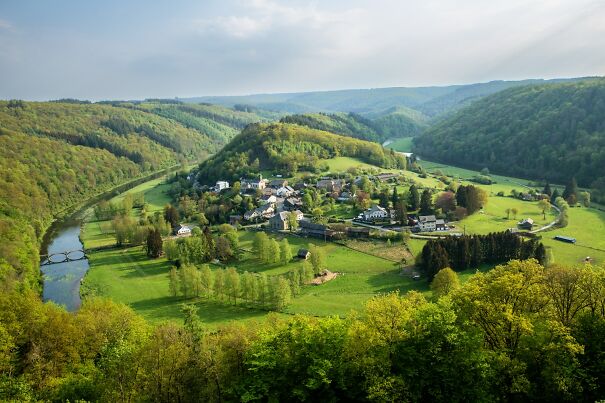
Kiss my Belgian a*s. You've already have become a freaking chauvinist like most French frogs!
your reaction is probably why he doesn't miss USA ! go figure
Load More Replies...Australia: come over in 1978 from USA age 22 for 6 months holiday. Still here. PROS: quality of life is better. Health care . Less people. Made firm friends very easily. Did not have to learn a new language (however the slang did stump me at first). Better wages and I am not a professional. Much more laid back life style but that could be because I do not live in a major city. CONS: I really can not think of anything I would say is a negative. I live in a regional town, Cairns, northern Beaches. Love the weather, love the heat, love the ocean.
My sister lived in Brisbane for a couple of years and was constantly asking us to send American food and candy and goodies. And Vegemite is an atrocity.
What about all the animals and insects that are so frequently in other posts? Aren't you scared indoors and out?
CONS: as per the lyrics of the song "The Time has Come", by Midnight Oil. Thanks.
Cairns is awesome. I've been there twice. Could quite easily live there
 I live in China
Pros:
Virus is gone = normal life,
Cheap af,
Earn lots,
Super convenient transportation/payment methods,
Good food
Cons:
Well, I probably shouldn't write them. They might be watching...
But one for sure is being a foreigner. Everyone thinks foreigners have the virus still and they really make you go the extra mile to prove you don't.
I live in China
Pros:
Virus is gone = normal life,
Cheap af,
Earn lots,
Super convenient transportation/payment methods,
Good food
Cons:
Well, I probably shouldn't write them. They might be watching...
But one for sure is being a foreigner. Everyone thinks foreigners have the virus still and they really make you go the extra mile to prove you don't.
Been here 12 years and have to add to the pros the very low crime rate. Life is definitely NOT back to normal after COVID with high unemployment due to massive closures of all types of businesses.
Sorry, I missed the Americans only bit. I am Australian.
Load More Replies...In fact, the Chinese government tried to murder her before she was ever born. It was right when China was starting its 1-Child policy. Her parents had 2 sons they got pregnant with her. There was no leniency from the Chinese government! They had police stationed outside parents' home day after day, and if her mom had dared to come outside at all, they would have taken her and forced an abortion upon her. Some of the nightmarish stories she's told me would horrify you.
Is nobody going to mention the fact that they send their own citizens to "re-education camps" if the government learns that you don't 100% agree with them? And that they have one of the very worst records on freedom of speech and of religion? My ex-wife came from China. If anything, it's even worse now than when she fled the nation.
Just add "all praise chairman Xi" to everything, and/or "Winnie the Pooh sucks and should be banned". Either or both.
My nephew has been in China for 10 years, happily married dad of 2. COVID has been really hard, quarantined within your own block for months on end. Resorted to running up and down the stairwell for exercise. "It will never be my home, but it's my wife's home and that's enough for now" he says.
I have a friend there and she is living her best life saving money while traveling and having all sorts of new experiences. But yeah, there were some rough spots but nothing too different from here. A few that were different.
 Moved to Canada a decade ago.
Pros:
A middle class. Not just a “I’m not in poverty THIS month!” Class.
Working class wages are actually a thing. So are real unions. I think that’s probably related.
Healthcare. Jesus f**k. Until you live in a grown up- big-boy country you don’t truly GET the extent that US healthcare is just f*****g bananas.
Maternity leave. My sister was ecstatic she got 6 weeks mostly unpaid leave with her new baby. As a professional. That’s horrifying. My wife got 1 year and her union tops her up to 96% of her wage for the first 6 months, and she makes EI for the rest.
The culture is (sorry Canadians) almost identical. You just have to learn a few different store names. There’s more differences between the regions of the US I’ve lived in than there is between where I grew up and Canada.
Cons:
It snowed once in October and I didn’t see grass until a few weeks into March. Then in snowed in April just to remind me what I’ve done.
Randomly find myself adding “hey?” To the end of sentences. I know it’s supposed to be “eh?” But in truth they do both quite a lot and there is a distinction.
Edit: I’m on mobile. Formatting was not so good.
Also edit: I've had a lot of people interested in the immigration options for Canada. I'm no expert and my journey was a decade ago, so I'm posting a link to Canada's well laid out immigration site. They have a lot of programs and avenues into the country. Maybe more after Covid isn't a daily struggle. https://www.canada.ca/en/services/immigration-citizenship.html
Moved to Canada a decade ago.
Pros:
A middle class. Not just a “I’m not in poverty THIS month!” Class.
Working class wages are actually a thing. So are real unions. I think that’s probably related.
Healthcare. Jesus f**k. Until you live in a grown up- big-boy country you don’t truly GET the extent that US healthcare is just f*****g bananas.
Maternity leave. My sister was ecstatic she got 6 weeks mostly unpaid leave with her new baby. As a professional. That’s horrifying. My wife got 1 year and her union tops her up to 96% of her wage for the first 6 months, and she makes EI for the rest.
The culture is (sorry Canadians) almost identical. You just have to learn a few different store names. There’s more differences between the regions of the US I’ve lived in than there is between where I grew up and Canada.
Cons:
It snowed once in October and I didn’t see grass until a few weeks into March. Then in snowed in April just to remind me what I’ve done.
Randomly find myself adding “hey?” To the end of sentences. I know it’s supposed to be “eh?” But in truth they do both quite a lot and there is a distinction.
Edit: I’m on mobile. Formatting was not so good.
Also edit: I've had a lot of people interested in the immigration options for Canada. I'm no expert and my journey was a decade ago, so I'm posting a link to Canada's well laid out immigration site. They have a lot of programs and avenues into the country. Maybe more after Covid isn't a daily struggle. https://www.canada.ca/en/services/immigration-citizenship.html
I am Canadian. Nothing here is 100%, but mostly true (I think) We are doing our damnedest not to import US political culture (although there is some creep through). Our major political leaders have gotten the message to STFU about debating whether to crawl back reproductive rights and we do not want gun culture, thank you very much (legit hunting and rural use is ok). There is a growing acknowledgement that Indigenous rights are to be respected and that what our country did in the past is shameful and must be paid for. Generally pro-immigration and an acknowledgement that immigration is a financial win in the long run. We are interested in promoting human rights generally here and abroad (and can be a little naively optimistic about our abilities to do so). Yes to LGBTQIA rights and living with respect and dignity. Keeping culture wars out of (most) public schools. A judiciary that is not elected and therefore not subject to the whims of local politics.
But please, and I’ve held this opinion since I was about 10(49 years) no hunting for sport, for theloveofPete, it simply wastes the life of a creature, not because it’s unusually not in fear of man, or because you want a bearskin rug. Animals aren’t insensate or truly dumb (this does not excuse my last dog), please treat them as sentient beings.
Load More Replies...What? So basically wherever you live in Canada has the same weather as Michigan? I always thought you were super colder than us. Even though we are right below you. It doesn't even get like comfortably warm here until end of May/early June. But I guess it doesn't really matter if you prefer staying indoors.
Can we not put a peitition to canada to annex the guys just south of you? They are rather silly. Thanks, planet earth.
Really? I was paid slave wages in Canada with no health insurance on a work visa plus no food stamps
american though? or from a country they do not like? my fellow africans get a short shrift unless they're bringing lots of money in.
Load More Replies...I watched my mother die a slow, agonizing, fearful death. She was constantly fighting for breath, constantly afraid, and completely cognizant that she was dying, and could do nothing but suffer until the very end. She would have gladly chosen a medical suicide, and I would have supported her in that. Anyone who can't see the mercy in that is likely blinded by draconian, religious bull s**t.
Load More Replies... 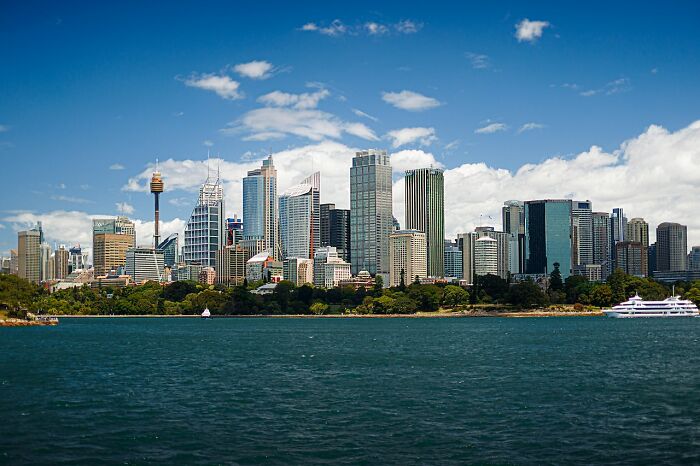 Australia. I’m actually in the US right now and kind of stuck here due to personal reasons and the pandemic, but we still have our Australian home and will be heading back as soon as travel restrictions lift.
Pros: almost everything. Seriously though, other posts have covered this but good salaries, better work-life balance with a more leisure focused culture, guaranteed vacations and healthcare, retirement system with minimum 9.5% employer contribution, fantastic quality of food ... even basic supermarket stuff tastes so much better than the US, and pretty nice weather for most of the country. Ranked choice voting nationally, and elections run by an independent electoral commission who also sets district boundaries according to a neutral data-driven formula. Oh and essentially Covid-free right now (7/8 states had zero cases yesterday, the 1 remaining state had 3 cases).
Cons: it’s smaller and more isolated market so if consumerism is your thing, you’ll find less variety of goods and services, fewer options for things like streaming services (though with VPN and a valid foreign address most of that is a non-issue), certain things like cars and appliances are more expensive. Opening hours for stores are shorter and deliveries from Amazon etc. are a bit slower. You may also find salaries in certain industries are a bit lower than the US, though still pretty good by global standards.
But overall the pros vastly outweigh the cons.
Australia. I’m actually in the US right now and kind of stuck here due to personal reasons and the pandemic, but we still have our Australian home and will be heading back as soon as travel restrictions lift.
Pros: almost everything. Seriously though, other posts have covered this but good salaries, better work-life balance with a more leisure focused culture, guaranteed vacations and healthcare, retirement system with minimum 9.5% employer contribution, fantastic quality of food ... even basic supermarket stuff tastes so much better than the US, and pretty nice weather for most of the country. Ranked choice voting nationally, and elections run by an independent electoral commission who also sets district boundaries according to a neutral data-driven formula. Oh and essentially Covid-free right now (7/8 states had zero cases yesterday, the 1 remaining state had 3 cases).
Cons: it’s smaller and more isolated market so if consumerism is your thing, you’ll find less variety of goods and services, fewer options for things like streaming services (though with VPN and a valid foreign address most of that is a non-issue), certain things like cars and appliances are more expensive. Opening hours for stores are shorter and deliveries from Amazon etc. are a bit slower. You may also find salaries in certain industries are a bit lower than the US, though still pretty good by global standards.
But overall the pros vastly outweigh the cons.
Cheers for mentioning about the independent electoral commission (AEC). All that nonsense that happened at the last US presidential election just wouldn't happen here. And the voting is uniform, fair and simple, no debates about "hanging chads" or voting machines being tampered with or voters being disenfranchised
Also, elections are always on Saturdays so that the majority of people don't need to take time off work. And there are plenty of booths so long waits aren't common.
Load More Replies...Most of the cons listed have changed drastically in the last few years. I feel no difference than when was in the US - maybe there is less, but damn how much do we need?
 Currently living in Japan. From the Midwest originally.
Pros:
- Safe
- Amazing food... like really amazing.
- quite affordable once you learn the ins and outs.
- People are generally polite
- pretty good healthcare system
- hanami and matsuri
- can have a beer in the park if I feel like it.
- Lots of national holidays
- clean (other than The party areas of Tokyo)
- This country is beautiful.
- convenience stores are super convenient
Cons:
- so much paperwork for everything.
- No insulation in houses or apartments (in Kanto region)
- can be expensive
- racism/xenophobia (I.e. gaijin seat)
- little opportunity for career growth
- basically can’t get mortgage, loan, or start a business unless your business partner or spouse is Japanese
- ATMs aren’t open 24/7
- work opportunities constrained to type of visa (US does this too but posted this in case someone is interested in moving here)
- work- life balance doesn’t exist.
- plastic. Everywhere.
Neutral:
- very collectivist. Kind of the polar opposite of the extreme individualism back in the states. It has its own pros and cons so I’m just putting it as neutral.
Currently living in Japan. From the Midwest originally.
Pros:
- Safe
- Amazing food... like really amazing.
- quite affordable once you learn the ins and outs.
- People are generally polite
- pretty good healthcare system
- hanami and matsuri
- can have a beer in the park if I feel like it.
- Lots of national holidays
- clean (other than The party areas of Tokyo)
- This country is beautiful.
- convenience stores are super convenient
Cons:
- so much paperwork for everything.
- No insulation in houses or apartments (in Kanto region)
- can be expensive
- racism/xenophobia (I.e. gaijin seat)
- little opportunity for career growth
- basically can’t get mortgage, loan, or start a business unless your business partner or spouse is Japanese
- ATMs aren’t open 24/7
- work opportunities constrained to type of visa (US does this too but posted this in case someone is interested in moving here)
- work- life balance doesn’t exist.
- plastic. Everywhere.
Neutral:
- very collectivist. Kind of the polar opposite of the extreme individualism back in the states. It has its own pros and cons so I’m just putting it as neutral.
sounds like a place to visit but not live. I would not deal with the racism, as an African. Highly offensive.
 Been in Taiwan since 1999. I go back to visit every two years or so.
Pros:
1. Affordable healthcare
2. A healthier diet (on average)
3. Better public transportation
4. Cost of living (outside of Taipei)
5. A safer place to raise my kids
Cons:
1. The constant threat of China
2. Ambivalence about Taiwan's national identity
3. Summer heat when I have to work
4. Good hamburgers and pizza hard to find
5. Worrying about my kids' future (see: #1)
Been in Taiwan since 1999. I go back to visit every two years or so.
Pros:
1. Affordable healthcare
2. A healthier diet (on average)
3. Better public transportation
4. Cost of living (outside of Taipei)
5. A safer place to raise my kids
Cons:
1. The constant threat of China
2. Ambivalence about Taiwan's national identity
3. Summer heat when I have to work
4. Good hamburgers and pizza hard to find
5. Worrying about my kids' future (see: #1)
How can you be in Taiwan and go back every three years? That just sounds like a vacation spot.
I think they mean visit the US every two to three years.
Load More Replies...  Lived in Ireland for a year (and plan on moving back...long story short bar exam delays because of covid)
pros: The people are super friendly like insanely so. You can go from a big city to 'the middle of nowhere' in an hour or 2. The entire country takes a lackadaisical approach to basically existing. "Serious" crime is almost nonexistent as is police brutality. They are part of the EU (so there are actual human rights)
neutral hit/miss: the weather is super consistent. It is going to be cold enough you need a jacket and it is going to rain today. Every single day. I know to some people this is awful but to others this is great. (it rarely gets cold enough to snow, and summer lasts a few weeks)
cons: the rent in Dublin is INSANE (like nyc levels) homelessness is a problem as is petty crime, and really be ready to tell people to p**s off (like the young woman who all of a sudden comes up to you with a sob story about her and her 5 brothers and sisters). The bureaucracy is also laughably inept, like as a student you have to register and get an ID (which is going to take you all day) and no one will EVER ask for it no exaggeration.
Lived in Ireland for a year (and plan on moving back...long story short bar exam delays because of covid)
pros: The people are super friendly like insanely so. You can go from a big city to 'the middle of nowhere' in an hour or 2. The entire country takes a lackadaisical approach to basically existing. "Serious" crime is almost nonexistent as is police brutality. They are part of the EU (so there are actual human rights)
neutral hit/miss: the weather is super consistent. It is going to be cold enough you need a jacket and it is going to rain today. Every single day. I know to some people this is awful but to others this is great. (it rarely gets cold enough to snow, and summer lasts a few weeks)
cons: the rent in Dublin is INSANE (like nyc levels) homelessness is a problem as is petty crime, and really be ready to tell people to p**s off (like the young woman who all of a sudden comes up to you with a sob story about her and her 5 brothers and sisters). The bureaucracy is also laughably inept, like as a student you have to register and get an ID (which is going to take you all day) and no one will EVER ask for it no exaggeration.
I lived in Dublin in the year 2000 as an exchange student. In general, Irish people were VERY VERY friendly, specially middle age / old people. But some younger generarions were xenophobic and racist. I was a teenager and got harassed many times, once a bunch of teens threw stones at me while walking home. And I am not even dark, I look Mediterranean. The darker students at my school were also constantly harassed. Some were hit on the streets every weekend. Very difficult. Amazing landscape, but back then it wasn't so easy to travel. The bus network wasn't so developed. Hopefully it is better today. And the weather was c**p! Awful. The food was meeeeh. The culture was awesome. A lot of dancing, singing and joking around. They joke a lot.
Originally a Brit, I've lived in Ireland 24 years and became a citizen just before COVID hit. (EU citizenship too valuable to lose because of Brexit).There is a housing crisis - rents have increased exponentially in the last couple of years, landlords are selling up reducing the supply, builders insist on building "luxury" (read expensive) homes rather than affordable ones. Schools are oversubscribed and still dominated by the Catholic church. The healthcare system is on its knees due to chronic underfunding and resistance to change. Government seems disconnected from reality. Public transport is a joke if you're not in a city. History, scenery, the outdoors all great. Weather can give you three seasons in a day. Everyone swears, all the time. If you like music and the pub, the craic is mighty. Just like everywhere else, some people are friendly and others are not. Once you find your tribe, you're set for life!
odd, my son was just there and he says they're not friendly at all. he was told by locals the the absolutely hate Americans. it was in Dublin, so he's not speaking for the whole country. he's been traveling Europe and Dublin was the worst.
 Had to come back because of Covid, but I plan on returning next year-
Dominican Republic. I was in Santiago, which turned out to be a neat cultural zone.
Pros-
lots of fantastic, high quality food and activities for cheap
the easy access to my favorite fresh favorite fruits and vegetables (passionfruit, mango, purple malanga especially) is awesome
the people, while loud and annoying, are generally friendly and humble
beautiful views and animals (I lived in a town but had hummingbirds living in the tree outside my window!)
definitely cheaper to live here, my total monthly budget was around $600 for everything, including eating out in restaurants and travelling to the beach, etc. The rent for my brand new apartment was $150 a month and public transport is 60 cents.
the tropical weather is friendlier on my skin
Since everything is nearby, I usually biked or walked everywhere and, combined with the awesome food, lost weight and got toned
The locals will do anything for a few bucks. I mainly asked for little things- changing light bulbs, killing a particularly sinister roach, bringing up my groceries (lived on the 4th floor, heavy stuff). They loved me because I tipped generously (an extra dollar) for anything they did.
Cons-
Weirdly enough, the people are incredibly clean with their own homes but disgusting in public. Littering everywhere and ridiculously difficult to find a public toilet with soap or even a toilet seat are the 2 things that bothered me the most.
Men are open perverts and sexist. I look like a local due to my dominican descent and they were still a pain. For my blonde friends it's a nightmare. It's just not a good idea to go anywhere alone.
Most things are little too casual and a bit lazy for my taste.
The poor and the rich are intermingled. As a result, I can be walking down a block with mansions, and when I turn the corner, there are people barely surviving below tin can roofs. Really, really sad. A ruined place that was obviously abandoned could still be hosting a family of 7 inside.
Imported luxuries are stupid expensive here. Explain to me why a fair trade chocolate bar costs almost $10 here. Maple syrup is $30. Why?!
Giant flying roaches at night. 'nuff said. I don't mind tarantulas and snakes. Can't stand roaches. Had window screens installed, laced poison under my front door, and that basically took care of it.
In spite of the negatives, I loved it there. Life was simple and I lead a minimalist lifestyle (and i always carried soap and pepper spray, lol).
Had to come back because of Covid, but I plan on returning next year-
Dominican Republic. I was in Santiago, which turned out to be a neat cultural zone.
Pros-
lots of fantastic, high quality food and activities for cheap
the easy access to my favorite fresh favorite fruits and vegetables (passionfruit, mango, purple malanga especially) is awesome
the people, while loud and annoying, are generally friendly and humble
beautiful views and animals (I lived in a town but had hummingbirds living in the tree outside my window!)
definitely cheaper to live here, my total monthly budget was around $600 for everything, including eating out in restaurants and travelling to the beach, etc. The rent for my brand new apartment was $150 a month and public transport is 60 cents.
the tropical weather is friendlier on my skin
Since everything is nearby, I usually biked or walked everywhere and, combined with the awesome food, lost weight and got toned
The locals will do anything for a few bucks. I mainly asked for little things- changing light bulbs, killing a particularly sinister roach, bringing up my groceries (lived on the 4th floor, heavy stuff). They loved me because I tipped generously (an extra dollar) for anything they did.
Cons-
Weirdly enough, the people are incredibly clean with their own homes but disgusting in public. Littering everywhere and ridiculously difficult to find a public toilet with soap or even a toilet seat are the 2 things that bothered me the most.
Men are open perverts and sexist. I look like a local due to my dominican descent and they were still a pain. For my blonde friends it's a nightmare. It's just not a good idea to go anywhere alone.
Most things are little too casual and a bit lazy for my taste.
The poor and the rich are intermingled. As a result, I can be walking down a block with mansions, and when I turn the corner, there are people barely surviving below tin can roofs. Really, really sad. A ruined place that was obviously abandoned could still be hosting a family of 7 inside.
Imported luxuries are stupid expensive here. Explain to me why a fair trade chocolate bar costs almost $10 here. Maple syrup is $30. Why?!
Giant flying roaches at night. 'nuff said. I don't mind tarantulas and snakes. Can't stand roaches. Had window screens installed, laced poison under my front door, and that basically took care of it.
In spite of the negatives, I loved it there. Life was simple and I lead a minimalist lifestyle (and i always carried soap and pepper spray, lol).
Really BP? I can read about the awful roaches, I don't need to see a picture!
Intermingling of classes and economic levels is a really good thing. Part of the problem in the US is that classes, races, etc. are so separate that it's easy to forget that they are real people and not just some "other".
I’m an American that immigrated to Canada two years ago. Pros: Almost everything Cons: Cold most of the year and no Publix.
Lived in Manaus Brazil for a good while Pros: 1. Decently low cost of living (come from rural Midwest so my mind is based on that) 2. Work is relatively easy to come by even if you don’t have a college degree 3. Free public healthcare with option of paid private 4. Free public university with option of paid private 5. Pretty great workers benefits ie. Guaranteed ~30 days vacation, childcare, maternity leave, healthcare (obviously different workplaces will have different benefits but it’s basically standard) 6. An absolutely crazy amount of nature, I drive 2 hours out of the city and I’m in the middle of the rainforest. Most beautiful place I’ve ever been 7. Friendliest people I have ever met, never had any problems with people (possible con is there isn’t much concept of personal space so if that’s important to you then I’m sorry) 8. Sexy sexy people Cons: 1. Hot all the time, at least in Northern Brazil. Southern gets more temperate (think 95F everyday) 2. Rain almost every day, dry season doesn’t mean dry, it just means less wet 3. Can’t flush toilet paper 4. If you’re not born there it’s usually a bad idea to drink any tap water 5. Once had a 10 inch tarantula land on me while I was pooping 6. Crime is pretty bad in some places. If you’re not dumb it shouldn’t affect you but people go to places they shouldn’t. 7. TRAFFIC, once took me 2.5 hours to travel about a mile
If I experienced that, I would be careful with the tarantula so I don’t accidentally hurt it.
Load More Replies...Moved to New Zealand Pros: -Free healthcare -More individual choice over health(prenatal, postnatal, labour and delivery) -12 month maternal leave, 6 months paid, $60/week payment NOT income tested for first year of baby’s life, with extensions to age 5 for low income families -Food is less diverse but ultimately far healthier/less processed/less sugar and salt, etc -Buying property is far easier -Getting a loan is far easier -Going to University is far easier, cheaper, I did my BA in two years because summer school -Jobs are much more attainable, and the application and interview process is far more friendly(you don’t apply online for ten jobs and hear back from one) -Work and trades are so much easier to find and keep, no fear of layoffs except in exceptional circumstances -4 weeks paid time off, a lot of places allow more, our Christmas period shuts almost all business down for two weeks(except groceries, gas, big companies, etc) -You’re ALLOWED to easily take 2 or more weeks off at a time, some of my family in Cali would need a medical certificate and claim stress leave to get more than two weeks off which is f*****g ludicrous -No traffic unless you live in Auckland -Anywhere in the country you’re relatively close to the bush, the beach, or both -Our beaches aren’t crowded, there’s still very accessible but remote places -So much more safe, my kids can play in the street, walk into town, ride the bus to the next town over -California has such a huge number of stolen kids/people I honestly wouldn’t feel comfortable having my kids live there, I think I’d be overly protective -Lifestyle and people are much more easygoing -Lots of rain which I like, but still beautiful summers, not extreme heat like California(where I’m from) -We have a mean a*s prime minister with a focus on human rights/equality and putting families first -COVID got the boot so life is normal here -Schools are multicultural, with a focus on inclusivity(bilingual units, school uniforms made specifically for Pasifika students) -General relaxed attitude towards material possessions, not built purely on hard out capitalism so if I lived in the states, I’d feel pressure to look a certain way(am female) and have a certain standard of lifestyle like nice car, nice clothes, even if I’m broke. whereas over here nobody really gives a s**t which is cool. -Our police don’t kill us Cons: -Can’t get spicy food unless I make it my damn self -Restaurant/food variety like damn I just want some BBQ -Can’t get used to Christmas in summer -Food and clothes, makeup, alcohol, general items are more expensive here -Vehicle WOFS are b******t, in America as long as the car runs you can drive it haha here they have to be kept to a “safe standard” pfft. -Halloween, no holidays are big here, so bring your own decorations
No kidding. I wish we had that and Germany's driving laws in the states.
Load More Replies..."in America as long as the car runs you can drive it" In the s**t hole parts of America, you mean.
UK has a thing where you have to get roadworthied EVERY year, good idea. We have lots of garbage on the road in africa as well.
 Rural Ireland for 5 years
Pros:
Affordable and non-defensive healthcare, beautiful nature, pretty much no dangerous animals, small enough to make day trips to the big cities.
Cons:
Very little diversisty, high cost of living, the government only cares about Dublin and Cork, a lot more sexism than I was accustomed to.
Rural Ireland for 5 years
Pros:
Affordable and non-defensive healthcare, beautiful nature, pretty much no dangerous animals, small enough to make day trips to the big cities.
Cons:
Very little diversisty, high cost of living, the government only cares about Dublin and Cork, a lot more sexism than I was accustomed to.
 Moved to Sweden.
Pros:
- Healthcare. Man. Takes a while to get in the system, but it's buttery smooth after that. Even paying out of pocket here is cheaper than good insurance in the US.
- 20-30+ days paid vacation. I don't even know what to do with that much vacation. Jesus christ.
- Almost as many sick days as you want. Just don't be a d**k about it.
- Public transportation. It exists. Didn't exist where I came from.
- Weather. I love the cold. Summer can be bad. If its 80+ outside, there is no A/C, and the sun will be out for a long time.
- Lots of modernization. Everything is tied to your SSN. Little scary. But you update your phone/address at one place and all your bills and such will get to the right place.
- The people are super nice and pretty smart. You can have a good conversation with just about anyone.
- Healthy food. It's mind blowing how unhealthy american food is in comparison.
- Easy language. Swedish might be the easiest language for an English speaker to learn. Everyone speaks English so it can be hard to learn to speak it if you don't have a dedicated practice group.
- Beautiful landscape (if you like trees).
Cons:
- Weirdly conservative about certain issues. Drugs/alcohol especially.
- Trains suck. Always late. Sometimes they just don't come at all.
- If you don't like bread, the food is a bit underwhelming.
- Licorice.
- You have to know someone on the inside to make anything happen. Looking for a job? Way easier if you know a guy who knows a guy... Looking for a place to rent? Impossible if you don't know a guy who knows a guy...
- Pay is on the lower side. I could easily make double in the US what I do here. Don't care cause I like the benefits way more than the extra money. Minimum wage is way better here, though.
- Cost of living can be high. Sales tax is way higher here. My condolences if you end up needing a car.
- Renting an apartment is impossible. They love condos for some reason. Can take 10+ years to find a place to rent.
- People don't talk to you. 4+ years and there has been maybe two times that someone just walked up and had a conversation. Can't even remember the last time someone said hi.
- Very hard to meet people and make close friends if you're not incredibly outgoing. Swedes are very respectful and don't want to bother you. They'll become acquaintances in an instant but it will take years for them to go beyond that.
- The country does not work if you don't have a full social security number.
Great place to live. I'd only consider giving it up for Canada.
If you want to get into Sweden the best bet is to be some kinda programmer. Ideally web stuff. And you gotta know someone on the inside. Other than that you gotta find a Swedish significant other. Expect extreme wait times with migrations.
Moved to Sweden.
Pros:
- Healthcare. Man. Takes a while to get in the system, but it's buttery smooth after that. Even paying out of pocket here is cheaper than good insurance in the US.
- 20-30+ days paid vacation. I don't even know what to do with that much vacation. Jesus christ.
- Almost as many sick days as you want. Just don't be a d**k about it.
- Public transportation. It exists. Didn't exist where I came from.
- Weather. I love the cold. Summer can be bad. If its 80+ outside, there is no A/C, and the sun will be out for a long time.
- Lots of modernization. Everything is tied to your SSN. Little scary. But you update your phone/address at one place and all your bills and such will get to the right place.
- The people are super nice and pretty smart. You can have a good conversation with just about anyone.
- Healthy food. It's mind blowing how unhealthy american food is in comparison.
- Easy language. Swedish might be the easiest language for an English speaker to learn. Everyone speaks English so it can be hard to learn to speak it if you don't have a dedicated practice group.
- Beautiful landscape (if you like trees).
Cons:
- Weirdly conservative about certain issues. Drugs/alcohol especially.
- Trains suck. Always late. Sometimes they just don't come at all.
- If you don't like bread, the food is a bit underwhelming.
- Licorice.
- You have to know someone on the inside to make anything happen. Looking for a job? Way easier if you know a guy who knows a guy... Looking for a place to rent? Impossible if you don't know a guy who knows a guy...
- Pay is on the lower side. I could easily make double in the US what I do here. Don't care cause I like the benefits way more than the extra money. Minimum wage is way better here, though.
- Cost of living can be high. Sales tax is way higher here. My condolences if you end up needing a car.
- Renting an apartment is impossible. They love condos for some reason. Can take 10+ years to find a place to rent.
- People don't talk to you. 4+ years and there has been maybe two times that someone just walked up and had a conversation. Can't even remember the last time someone said hi.
- Very hard to meet people and make close friends if you're not incredibly outgoing. Swedes are very respectful and don't want to bother you. They'll become acquaintances in an instant but it will take years for them to go beyond that.
- The country does not work if you don't have a full social security number.
Great place to live. I'd only consider giving it up for Canada.
If you want to get into Sweden the best bet is to be some kinda programmer. Ideally web stuff. And you gotta know someone on the inside. Other than that you gotta find a Swedish significant other. Expect extreme wait times with migrations.
"Can take 10+ years to find a place to rent." Hope I don't get downvoted for this questions but where do you live in the meantime?
Moved to Japan. Pros: Clean cities, people generally polite in public, good food, quiet even in big cities Employment options are plentiful if you're bilingual and have another skill, like IT or web design/programming Each month seems to have at least 1 holiday Public transit is very convenient in big cities Cons: Language is hard to learn, people often put on a "polite" air but really don't like you or don't like non-Japanese in their companies. Cities are CROWDED. Public transit is often very complex and hard to figure out. People all go out on vacation on holidays, making them hard to enjoy, or companies often use those holidays as opportunities to get caught up on work. A lot of unspoken rules can affect your work and personal life and no one tells you because they assume you know them. Customer service is attentive but the "customer is always right" doesn't always exist. Restaurants get your order wrong and you pay full price but they apologize profusely. Returning items in stores is trickier than the U.S.
I lived in China for 2 years Pros inexpensive convenient, there are a lot of places within walking distance that offers really good food you pay with your phone everywhere, you rarely have to carry cash with you safe to just stroll around at night most stores offer next day delivery when you shop online, and the food delivery service is miles ahead of what's available in the US and at a fraction of the cost Cons lots of websites are blocked, so better have a VPN ready some of the infrastructures in some t2 t3 citiies haven't cought up so people just park everywhere on the sidewalk and such food safety...you really have to be careful your delivery doesn't come out of a dingy little kitchen where they just heat up food packets or something worse be aware, the crime rate isn't that bad but it exists like everywhere else, watch out for your pocket because it can be picked and in ways you would be impressed with
Two cons missing. Fake dangerous food (this is a serious problem they have a hard time stamping out) and tofu dregs projects(businesses went skint on the materials so many buildings and such can be and have been dangerous)
Canada: I can't stress this enough... Free healthcare!
Not sure if this counts since it was only for a year and I've since come back, but f**k it... Moved to Kuwait for a year because of my job. PROS: * a lot of regional Asian food was stupid cheap and amazing. Not just Middle Eastern food, but because of the influx of Thai, Vietnamese, Chinese, and Philippine workers, all of those cultures were well represented. My apartment was in the really s****y part of town where most of their slave labor (more on that in the CONS section) was kept, so I could get the absolute best green curry I've ever had in my life for less than $4 USD. * I also enjoy smoking a hookah, and those were available everywhere. Any cafe that resembled a coffee shop also had hookahs you could smoke. * Delivery *everything*. Even if you just wanted a case of bottled water (see CONS below) from the local corner store, they'd deliver it to you. Before Uber Eats, DoorDash, etc existed in the US, Talabat was running s**t in Kuwait. CONS: * so about that slave labor thing I mentioned. Kuwait was importing employees for construction, nursing, and child care from other countries, and what we saw a lot was that they would bring those employees in, confiscate (read: steal) their passports, which would then force them to stay there as basically slave labor. * If you're in the bad part of town, basic sanitation was out the door entirely. We had uncapped sewer pipes, faulty plumbing, inconsistent electricity, and undrinkable tap water. * While I was there, someone tried to run a garbage truck with a bomb in it into a group of cars driven by US citizens. Not great.
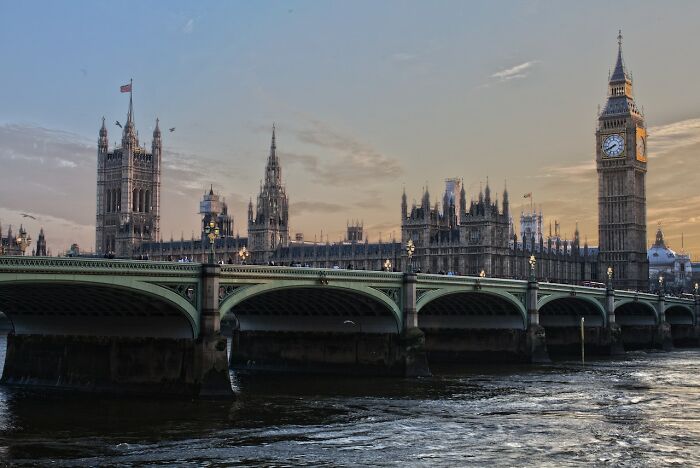 Moved to England.
**Pros:**
The NHS - I won't go broke if I get hit by a car and need emergency surgery
25 days paid holiday minimum a year, and we're actively encouraged to take them
Proximity to European countries for traveling
England, Scotland, Wales, Northern Ireland and Ireland are all gorgeous and amazing to travel around, no passport needed
Same language - although regional differences sometimes cause misunderstandings! (Pants = underwear, trousers = pants)
I don't worry about getting shot by police or random members of the public
**Cons:**
The NHS is severely underfunded, so if you have a non-urgent medical issue, getting it fixed can take quite a long time.
Every time I'm introduced to someone new, they ask what I think of Trump / gun laws.
Can't vote over here until I'm a citizen.
Mental illness is still a bit of a non-topic over here - there's still a "stiff upper lip" mentality around it in many places. Hard to get prescribed things that you'd easily be able to get in the US.
Moved to England.
**Pros:**
The NHS - I won't go broke if I get hit by a car and need emergency surgery
25 days paid holiday minimum a year, and we're actively encouraged to take them
Proximity to European countries for traveling
England, Scotland, Wales, Northern Ireland and Ireland are all gorgeous and amazing to travel around, no passport needed
Same language - although regional differences sometimes cause misunderstandings! (Pants = underwear, trousers = pants)
I don't worry about getting shot by police or random members of the public
**Cons:**
The NHS is severely underfunded, so if you have a non-urgent medical issue, getting it fixed can take quite a long time.
Every time I'm introduced to someone new, they ask what I think of Trump / gun laws.
Can't vote over here until I'm a citizen.
Mental illness is still a bit of a non-topic over here - there's still a "stiff upper lip" mentality around it in many places. Hard to get prescribed things that you'd easily be able to get in the US.
You can vote in the UK if you are an Irish citizen
Load More Replies...  I'm a bit surprised nobody has mentioned Korea yet!
I'm on year 8 in Korea, and I greatly enjoy it :)
PROS:
--> Fast and easy healthcare. There are a ton of doctors' offices around, and you can drop in and out and get meds for whatever ails you in short order. Back in summer, I took a soccer ball to the head and had some pretty intense dizziness for a few weeks. Multiple trips to the neurologist and the cost of an MRI and meds totaled maybe? USD 300 or so? That's with national health insurance, and I got the rest of the costs cleared through my private insurance.
--> Great public transportation. You can take a bus or train pretty much anywhere in the country. If you happen to live in Seoul, the metro lines that run through the city also snake out to and connect with a lot of the smaller cities around it.
--> Delicious food! So much good food~
--> People out in the countryside are very friendly! I've been given snacks and compliments by nice old people so many times.
--> Proximity to other countries: compared to living in the US, it's so much cheaper and quicker to visit multiple countries nearby.
--> If you live in or near a city, there is always so much to do! This country hardly ever sleeps.
--> Prime response to covid :)
CONS:
--> Air pollution. I've lived in Seoul and Incheon, which is right next door, and the air gets absolutely trash at certain points of the year. My trips to visit the family in the US are the only times I don't check the air quality on the regular. When the air gets really bad, I can see and taste it, and it dries out my eyes and throat.
--> Huge lack of awareness of other cultures. Especially considering how they have some big players in tech (Samsung, Hyundai, LG, etc.) and all their cultural exports (K-pop, etc.), they are really behind in cultural awareness. Every few years something comes up with some famous person doing stupid s**t in blackface or whatever, caricaturing Africans living in huts or some hiphop artist or whatever, and the automatic response is "We don't know about it! We did nothing wrong!" when people have been telling them for years that it's offensive. Of course, this is neither the start nor the end of it, but in general, Korea could do a lot better educating its citizens on how to properly treat and interact with other cultures if they really want to play on the international stage.
--> Fruits and veggies are so much more expensive than back in the US. A watermelon that might cost you five bucks USD costs 15 here.
--> Interactions with nature are so sterile. Except for a few exceptions, there are not a lot of places where you can really experience nature. You have to go far out into the middle of nowhere to see a good night sky without light pollution, and a lot of natural things are dressed up to ridiculous extents. I went to a cave recently with my husband, and there were fish tanks and light shows and stuff installed in it, like??? I wanted to see the actual CAVE.
I'm a bit surprised nobody has mentioned Korea yet!
I'm on year 8 in Korea, and I greatly enjoy it :)
PROS:
--> Fast and easy healthcare. There are a ton of doctors' offices around, and you can drop in and out and get meds for whatever ails you in short order. Back in summer, I took a soccer ball to the head and had some pretty intense dizziness for a few weeks. Multiple trips to the neurologist and the cost of an MRI and meds totaled maybe? USD 300 or so? That's with national health insurance, and I got the rest of the costs cleared through my private insurance.
--> Great public transportation. You can take a bus or train pretty much anywhere in the country. If you happen to live in Seoul, the metro lines that run through the city also snake out to and connect with a lot of the smaller cities around it.
--> Delicious food! So much good food~
--> People out in the countryside are very friendly! I've been given snacks and compliments by nice old people so many times.
--> Proximity to other countries: compared to living in the US, it's so much cheaper and quicker to visit multiple countries nearby.
--> If you live in or near a city, there is always so much to do! This country hardly ever sleeps.
--> Prime response to covid :)
CONS:
--> Air pollution. I've lived in Seoul and Incheon, which is right next door, and the air gets absolutely trash at certain points of the year. My trips to visit the family in the US are the only times I don't check the air quality on the regular. When the air gets really bad, I can see and taste it, and it dries out my eyes and throat.
--> Huge lack of awareness of other cultures. Especially considering how they have some big players in tech (Samsung, Hyundai, LG, etc.) and all their cultural exports (K-pop, etc.), they are really behind in cultural awareness. Every few years something comes up with some famous person doing stupid s**t in blackface or whatever, caricaturing Africans living in huts or some hiphop artist or whatever, and the automatic response is "We don't know about it! We did nothing wrong!" when people have been telling them for years that it's offensive. Of course, this is neither the start nor the end of it, but in general, Korea could do a lot better educating its citizens on how to properly treat and interact with other cultures if they really want to play on the international stage.
--> Fruits and veggies are so much more expensive than back in the US. A watermelon that might cost you five bucks USD costs 15 here.
--> Interactions with nature are so sterile. Except for a few exceptions, there are not a lot of places where you can really experience nature. You have to go far out into the middle of nowhere to see a good night sky without light pollution, and a lot of natural things are dressed up to ridiculous extents. I went to a cave recently with my husband, and there were fish tanks and light shows and stuff installed in it, like??? I wanted to see the actual CAVE.
Came to Spain as an au pair for 9 months when I was 18. Loved it and knew I wanted to come back. Returned just after turning 20 and now I'm 23. Pros: -native English speakers can generally find work easily as English teachers/tutors even without a degree -the weather, I'm form Milwaukee and winters are brutal and there's pretty much no where here with winters as bad as there. -universal healthcare -in general most things are cheaper than in Milwaukee -so safe, I feel comfortable walking home alone at night/from a club/bar etc. -food is delish -overall quality of life is generally better, more relaxed -so many pros honestly Cons: (almost all my cons are convenience related, i know i'm annoying) -anything that has to do with public administration/services generally goes really slowly and if you can't make the date of the appt. they assign you, you're f****d -almost nothing's open on Sundays, pretty much just restaurants -supermarkets don't have the variety they do in the US/fast food and junk food don't have as much variety -customer service sometimes leaves a bit to be desired
Ive lived Singapore almost 10 years. Pros: Great infrastructure, public transport and internet are excellent and cheap. Very walkable city. Good cheap food. Its within a short travel distance to alot of great surrounding countries, makes it an excellent hub for people who like to travel. Affordable healthcare (no universal healthcare like some other countries, but the government keeps costs low). Low taxes. Very cosmopolitan and diverse, both with the local population (Chinese, Indian, Malay ethnicities) as well as the foreigners living here. Cons: Hot and humid year round, which makes outdoor activities really difficult to enjoy (i miss fall and spring). Expensive to own real estate or cars. Everything is basically imported so expect to pay more, although there are alot of things online that are affordable (aliexpress, amazon, lazada, etc). Theres no personal space or consideration of others personal space. Most locals litter or leave their food on the table at food courts because they expect someone else to pick up after them (singapore is considered a really clean country but only because of the army of underpaid migrant workers cleaning it). Although its not as dracoian as western media makes it out to be, its culturally very repressed, and arts and socializing with locals is difficult.
I moved to Japan. Pros Healthcare Public transportation Safety Cons Toxic work culture
tokyo vs portland, or pros: * easy/affordable public transport, route to/from work is covered by employer * socialized medicine, clinics everywhere * cheaper rent & cost of living * low crime, no gun violence * majority of people wear a mask cons * pay is lower, harder to move up payscale * sexism and racism * language * far from family
 I moved to Austria in 2014. Originally came for a temporary job, worked on my masters to stay and then married my partner who is an EU citizen.
Pros: I'm currently on maternity leave, I get full pay for 4 months from the health insurance pool, then I can take up to 3 years leave with some pay and can split some of this with my partner. Work life balance exists here. Childcare is free or subsidized. Health care. Incredibly safe. Amazing public transportation. Even though I live in a city, nature is extremely accessible. It's easy/convenient to travel to other European countries. The weather is much nicer than the upper Midwest where I'm from. Rent is cheaper. The history is richer and evident. Walkability. University is free for citizens. I had to pay just under 400 € a semester and people were always horrified to hear that.
Cons: Salaries are generally lower. The inhabitants of my city are known for their grumpiness, and for good reason. Customer service is just bad. It can be hard to make friends with Austrians. Language barrier. A lot of places are cash only (I actually don't mind since most Atms are free, but getting caught with no cash is a pain in the a*s) and no stores are open on Sundays. Society in general is a bit more sexist than what I experienced in the States. Kids are divided into different schools, which can determine the rest of their life, after 4th grade (age 10).
I moved to Austria in 2014. Originally came for a temporary job, worked on my masters to stay and then married my partner who is an EU citizen.
Pros: I'm currently on maternity leave, I get full pay for 4 months from the health insurance pool, then I can take up to 3 years leave with some pay and can split some of this with my partner. Work life balance exists here. Childcare is free or subsidized. Health care. Incredibly safe. Amazing public transportation. Even though I live in a city, nature is extremely accessible. It's easy/convenient to travel to other European countries. The weather is much nicer than the upper Midwest where I'm from. Rent is cheaper. The history is richer and evident. Walkability. University is free for citizens. I had to pay just under 400 € a semester and people were always horrified to hear that.
Cons: Salaries are generally lower. The inhabitants of my city are known for their grumpiness, and for good reason. Customer service is just bad. It can be hard to make friends with Austrians. Language barrier. A lot of places are cash only (I actually don't mind since most Atms are free, but getting caught with no cash is a pain in the a*s) and no stores are open on Sundays. Society in general is a bit more sexist than what I experienced in the States. Kids are divided into different schools, which can determine the rest of their life, after 4th grade (age 10).
All of this also applies to Germany. Source: Germany is this dino's natural habitat
Moved to Germany: Pros: Healthcare, social safety nets, apartments (there are rules where everything has to be repainted and be clean), tilt windows (the US has no idea how awesome these are), public transportation, lower fixed costs, autobahn, no police/state troopers pulling you over for speeding, cheaper speeding tickets (10kph over is usually around €30), you can take your dog everywhere (including restaurants), government funded youth centers (you can catch some sick european bands and artists there), cheap beer (often cheaper than a bottle of water), you can bike everywhere (in cities), döner spots and kiosks, sick music scenes, train graffiti is at 1970's NYC level, easy travel to different countries, open borders, more environmentally conscious, cheaper and better skiing. Cons: People will publicly shame you for breaking the rules, old people that cut in line at the bakery, cash society (cash still rules everything around them), construction on every part of the autobahn, traffic cameras everywhere, entitled little man-children (young german men act like they can get away with being a******s without getting punched in the mouth, because they've never been punched in the mouth), can't shop on Sundays, no bagels (or jews - I'm from NJ, I miss y'all), their idea of spice is ketchup and mild curry flavor, apartments with BYO Kitchen (they take their damn kitchens with them when they move), words are really long, hard to make friends sometimes (usually treated like an outsider until accepted), no wilderness (the US' national parks are absolute treasures that germany can't come close to).
We really - I mean reeeaaally - like our kitchens 😉 and yes I completely agreed with you, especially with the 'outsider-treatment until accepted' that's an annoying thing even for germans that are moving within the country. It took ~5y to be fully included when I moved to a new city. At the moment there is a new coworker straight from the US and we all try to make it more easy for them (Most of us experienced the same situation). Here, as an adult, you make the most contacts through work, pets, late-night-grocer (Späti) at the next corner or some kind of sports club. (In villages it's mostly through pets and Sports)
Jewish and living in Germany - we are here, believe me! Obviously NJ has a lot more Jewish people per capita though. In Europe, Jews tend to be less openly distinguishable from the rest of the population than in the US, in my experience. No one really makes their heritage into a USP like they do in the US.
Things like crossing the road on a red man (not a crime in the UK) will get you a big dressing-down from the grannies. Or queuing the wrong side at the bakery or butcher's. When the rules aren't very clear, or are unknown to you, it can be a bit embarrassing to have someone shouting at you in public.
Load More Replies...Moved to Israel: Pros - it’s small so you can see family all the time. Weather is awesome. Beach is 5 minute walk. Free amazing health insurance. Cons - it’s small. Sometimes you wanna drive somewhere but here it’s a crowded island (because of our neighbors not a literal island a political one). Expensive. Especially housing.
Con:fear of the Gaza Strip somehow getting access to long range explosives before Israel finishes its missile defense system.
Thailand since 1991: Pro: Great people. Great food. Inexpensive place to live depending on your lifestyle. Top notch medical care. Covid-19: 3,600 cases with 59 deaths but the economy has taken a beating. Con: You must renew your visa every year as they don't really want you here unless you are a tourist. No permanent residence unless you are super wealthy. Traffic. Air pollution. Ineligible for Medicare or Social Security Survivor benefits (true most everywhere and not Thai specific)
 Moved to NZ in 2012
Pros:
Gosh it’s a beautiful country! Had a great focus on being outdoors which I love. Kiwi culture is quite casual and easy going, with a good amount of humor.
Public healthcare is great. Even before I was eligible things were really affordable. Ex. I had to fill some antibiotics ($5 under when publicly funded) before I was eligible and the chemist apologized about it being so “expensive” and me not getting the funded rate. It was still only $30. That was less than my co-pay back in the US. I’ve used publicly funded since and have had great experiences. My pregnancy and birth of my 1st cost me a whopping $150. That was just to cover a couple of scans and parking at the hospital. Even with my US health insurance I would have been looking at $5-10k for a “normal” pregnancy and birth.
Employee benefits are great. 4 weeks annual leave + 11 public holidays. Maternity leave is 12 months, with 6 of those paid. Every office I’ve worked in has done Friday drinks, where you knock off early and they put out a spread of nibbles and beer/wine. General office culture is much more relaxed than compared to corporate US.
We have a pretty fair and progressive government. Lots of woman leaders (PM and opposition party leaders are both women) which is refreshing to see more representation of strong women in positions of power.
Cons:
Housing prices are crazy. We were lucky to be able to buy, but it hurts to think how much we spend on the mortgage. We saved up for a 15% deposit in Auckland, and the amount of the deposit could have bought us a house outright in my US hometown. Thinking we’d be mortgage free in the US is a hard pill to swallow.
Things are expensive in general and you don’t have as much to choose from. I don’t buy a lot of things (will keep my phone until it stops working, instead of getting the newest version) so doesn’t impact me so much.
Wages are average. I’m happy with what I earn, but I could move to Australia and easily earn 25% more with same cost of living.
You’re far from everywhere. Trips back to the US are long and take a lot of planning. We do have AU and lots of islands near by for good holidays (pre covid), but anywhere else and it gets expensive.
Moved to NZ in 2012
Pros:
Gosh it’s a beautiful country! Had a great focus on being outdoors which I love. Kiwi culture is quite casual and easy going, with a good amount of humor.
Public healthcare is great. Even before I was eligible things were really affordable. Ex. I had to fill some antibiotics ($5 under when publicly funded) before I was eligible and the chemist apologized about it being so “expensive” and me not getting the funded rate. It was still only $30. That was less than my co-pay back in the US. I’ve used publicly funded since and have had great experiences. My pregnancy and birth of my 1st cost me a whopping $150. That was just to cover a couple of scans and parking at the hospital. Even with my US health insurance I would have been looking at $5-10k for a “normal” pregnancy and birth.
Employee benefits are great. 4 weeks annual leave + 11 public holidays. Maternity leave is 12 months, with 6 of those paid. Every office I’ve worked in has done Friday drinks, where you knock off early and they put out a spread of nibbles and beer/wine. General office culture is much more relaxed than compared to corporate US.
We have a pretty fair and progressive government. Lots of woman leaders (PM and opposition party leaders are both women) which is refreshing to see more representation of strong women in positions of power.
Cons:
Housing prices are crazy. We were lucky to be able to buy, but it hurts to think how much we spend on the mortgage. We saved up for a 15% deposit in Auckland, and the amount of the deposit could have bought us a house outright in my US hometown. Thinking we’d be mortgage free in the US is a hard pill to swallow.
Things are expensive in general and you don’t have as much to choose from. I don’t buy a lot of things (will keep my phone until it stops working, instead of getting the newest version) so doesn’t impact me so much.
Wages are average. I’m happy with what I earn, but I could move to Australia and easily earn 25% more with same cost of living.
You’re far from everywhere. Trips back to the US are long and take a lot of planning. We do have AU and lots of islands near by for good holidays (pre covid), but anywhere else and it gets expensive.
Pros Amazing food, kind people and no covid. Cons Can’t complain. Pollution is bad in the bigger cities. Though I really do love Vietnam.
Ireland Pros: -beautiful countryside -great airport with easy access to the rest of Europe -they speak English -friendly people -great pub culture -there’s a feeling that people are looking out for each other that you don’t get in the US -20 days paid holiday each year mandatory for full-time workers plus 9 public holidays Cons: -the public transport here is not as good as a lot of other European countries and it’s not particularly cheap either -owning a car is expensive af -I don’t love rain. It doesn’t rain as much as people think but it does certainly rain a lot more than I’d like. -salaries aren’t (in my experience) as high as in the US and cost of living in Dublin is ridiculous -less variety than I’d like in grocery stores
Moved to Canada 2 years ago :) Pros: Absolutely love universal healthcare. Not only that but my husband and I get good benefits from our jobs so anything not covered by universal healthcare also costs us a lot less. The benefits I’ve noticed are also a lot cheaper than they were back home in the states. Since I’ve moved here I’ve not been scared of getting shot at random public places. There’s been some violent crimes in our city but that is pretty location based as we live in the Florida of Canada. The armpit of the country as I like to refer to it. The McDonald’s here has a huge bakery where they make stuff like muffins, bagels, danishes, other breakfast pastries so if you want something quick but not s****y McDonald’s food it’s still easily accessible (but most Canadians will tell you they prefer Tim Hortons even tho it tastes like dust) Since I moved from a small town back home to a big city here there’s a lot more diversity, and I think Canada in general is a lot more diverse. Honestly back home I don’t think I had ever actually met someone from India, here we have so many of them. Not just that but the restaurants are more diverse as well, I can get authentic Indian curries for cheap, we also have Greek and middle eastern local restaurants, as well as a deli that serves more European foods. Also at the general supermarket there’s a lot of stuff I’ve never even seen before and I’ve tried a lot of new foods that way. The minimum wage where I live is $15, compared to $9 back home and in general I feel like jobs treat you more “fair” here. At least from what I understand it’s a lot harder to get fired. You have to really f*****g suck so much you get constant customer complaints or do something illegal. The plastic instead of paper money is pretty nice. And almost everywhere you go has tap so you can just use your phone without having to fiddle around with your wallet. Cons: My cons are mostly location based bc we live in Alberta. If you moved farther east or to BC you probably wouldn’t have the issues I have. 1. The people aren’t that different here. There’s just as much rampant racism, uneducated rednecks, dumbasses and a******s as there was back home in Missouri. Being in Alberta, “wexit” is also trending on twitter every 2 weeks bc they think they can secede from the mainland and be ok, which is highly unlikely, and they’re mostly just pissed about the pipeline not being jump started. That aside, Canadians have a rep of being Friendly but that isn’t the case. The people I’ve met in my city here are more rude and stuck up than back home, and the retail customers are literally atrocious. It’s also annoying when they say something sly about the US and how terrible it is and then sarcastically say “oh but no offence to you Ms America” even though I usually agree with them. Like that later if sarcasm and conceit isn’t necessary considering Canada and the US suffer a lot of the same issues. They’re all dogs**t drivers too, any dude with a white truck is guaranteed to either run you off the road or ride your a*s for 20 miles as you’re going 10 over the speed limit. 2. Minimum wage is higher but so is the cost of living. I think part of that is the currency exchange rate but it’s also just the fact that it’s the city and Alberta’s economy was hot garbage before covid bc they relied mostly on the oil rigs. A grocery trip back home that cost me 250$USD is like 300-400$ cad. Everything costs more, a soda at the gas station is smaller than back home but it costs 3.00+ after all the bottle taxes and s**t 3. In our city there’s a lot of homeless crackheads. They smell and out of the goodness of my heart (I’ve literally never seen a bum back home) I tried a few times to offer food or money bc I felt bad for them but most of them either seemingly didn’t understand what I was saying bc they were stoned or asked for more weed. They also wander up to you at the grocery store parking lot and mumble at you till you tell them to f**k off. A lot of dumpster divers too which grossed me out, they’re usually collecting cans to take to the depot for $10. I know that that’s like a government issue and that not Canada’s fault but in general it’s very unpleasant 4. It’s f*****g cold. Like -42F in the winter cold. I have to f*****g plug in my car??? That should be illegal. I hate the weather lol. When you step outside and your lungs burn from the air you know it’s time to go back in and take a nap. But you can do that bc for some reason everyone here is insane or part yeti and they want to go shopping so you have to go to work. 5. A lot of things I took for granted back home don’t exist here or are made very inconvenient. A lot of US based companies are allergic to having warehouses in Canada apparently so if I wanna order my favourite scented candles or my fav perfume from Victoria’s Secret it costs a lot more and it takes weeks bc it ships from the US. THEN I usually have to pay an additional import fee on top of the costs. This happens with a lot of things since they get shipped from the US, we’ve started trying to source everything from Amazon (they have a warehouse 2 hours from us) or looking for a Canadian owned company to buy stuff bc they ship from in Canada. The fruit, while in greater selection, is usually worse. Since it has a lot longer to travel it’s usually really sour bc it never got to properly ripen, and I was spoiled bc we had fruit trees in my yard at home. There are some delicious ones though, when they’re in season BC cherries are undefeated. Also their blueberries. So amazing. 6. This is literally just bc of the city we live in but the crime rate here is f*****g astronomical. My SkipTheDishes driver got his car stolen at Wendy’s bc he left it running in the winter while he grabbed our food. Constant thefts at my retail store as well. I think that’s attributed to our city’s drug problems as mentioned in my homeless people complaint lol. Because of this there’s a lot of people I wouldn’t think were suspicious back home that I always have to be weary of now at my work bc they’re probably gonna steal something. I wouldn’t say I feel “safe” most days, but again that’s entirely bc we live in the armpit of Canada. If you just went North a bit farther you’d be in the beautiful Canadian Rockies where there’s less crackheads. (But more bears) 7. There’s actually a lot of foods back home they don’t have here, like chilli cheese fritos, zebra cakes, no one here knew wtf jiffy corn bread mix was when I asked. Not like I can’t live without them but it’s sad when you get a craving and have to order a box of zebra cakes off Amazon for $20 lmao. I also can’t seem to find Jimmy Dean breakfast sausage at our grocery stores :( but that’s bc our city has a pork processing plant so they pump out a bunch of our pork products. Which is fine. But I miss Jimmy. Also some of the foods which we do have taste different bc trans fats are illegal in Canada and apparently trans fats are what used to make Slim Jim’s taste good. The ritz crackers are a little different. None of the cereal has artificial colors so it looks a little different. Minor stuff lol 8. There’s no Target. I miss Target. They tried very poorly to implement it here and it bombed so they closed them all and I am very upset :( Like I said most of my complaints are location based. If you go to other cities or other areas of the country there’s less crackheads and there’s more nice people. Overall I have no desire to go back to the states. Maybe to visit my family, just for nostalgia but I don’t miss it. Despite the flaws of our s****y city I feel fulfilled being here, I was able to get a job I really enjoy and I get paid a lot better than I did back home. As much as I complain about the a*****e Canadians there’s also a lot that are genuinely super sweet and live up to their reputations. The process of moving here was extremely stressful (even with a lawyer) and expensive (especially with a lawyer) but I’m glad I did it. Haven’t gotten into a lot of Canadian politics yet but hey at this point anything is better than the train wreck back home.
A lot of this stuff must be regional in the US, and might be the difference between urban and rural. Homeless people are in all major cities, no city person would leave a car running while ducking into a store, ethnic diversity is huge in many US cities, and half the brands mentioned aren't familiar to a lot of Americans.
Can't send you Jimmy Dean, sorry. I can send you Jiffy cornbread mix.
Australia for the last 10 years Pros: -Didn’t need to learn a new language -Pub food is pretty awesome [Chats - Pub Feed](https://youtu.be/1LGM82uPuvA) -Wage is awesome -Smaller country so I feel like I can have more of an impact in every way -There is a good social safety net and healthcare -Lots of good Australian music -So safe. I can be in any neighborhood at anytime and I don’t have any concern about getting mugged. Cons -Getting a good burrito is difficult -So far away from my family. So far away from lots of things. -Beer/liquor is expensive
I lived in Japan for nearly 3 and a half years and I fell in love with it. The pros: 1. the food(holy s**t the food) 2. The sight 3. Entertainment 3. The people(more or less) The reason why I say more or less for the people is because everyone is so stressed out all the time, the culture for an American is a nightmare all the rules and taboos, and the bureaucratic nonsense that makes doing anything take a million years nearly broke me. Cultural Japan needs to chill the f**k out and take a deep breath. I can't recommend going to Japan but I'd rather shoot myself then move back.(and I don't care who you ask Kanji is so annoyingly stupid)
My family moved to NZ in the 90's for two years when I was 12 and we're still here 28 years later. Pro: we're far removed from most of the world's problems. Con: it takes ages to get anywhere overseas other than Australia.
I moved to Buenos Aires, Argentina in August of 2015 from Los Angeles and I love it here. It has it's problems and occasionally I get frustrated with how things work here (or rather not work), but it's my home and I am happy. **PROS:** * RESIDENCE/CITIZENSHIP: One of the easiest and cheapest countries to get permanent residency and citizenship. Also if you apply for citizenship and they don't grant it you can sue the country because it is written into the constitution that everyone has the right to become a citizen. I used a lawyer because I didn’t want to deal with the notoriously bad bureaucratic BS that happens here. It was very affordable I probably spent like $1600usd for my lawyer fees and extra fees from immigration the first year of getting my temp residency. Maybe $800 for each of the next four years until I got my permanent residency. You can do it for very little though if you have the patience to do it yourself. * CHEAP: As long as you have an outside income from a stable currency you can live a really comfortable life. I spend about $700 a month between bills, food and entertainment (eating out, movies, whatever other extras) and I do just fine. Depends on your lifestyle though some think anything under $1500 a month is barely livable but it all depends on what you need in your life. * PUBLIC TRANSPORTATION: It’s fantastic. I am legally blind and they have really good bus systems here and in Buenos Aires the subway is fantastic. Stuff is a little old but it gets you where you need to go. * ICE CREAM: Yes the wonderful helado. It is pretty much a staple food here haha it's basically gelato and they have shops every few blocks. * HEALTHCARE: Pretty good and very cheap. If you can afford it go to private clinics and hospitals, but if its an emergency public healthcare is pretty decent and free. I had an accident 2 years ago on my electric skateboard I fell going 20mph and split my scalp open. Everyone was super helpful and nice. The ambulance took me to the hospital where I had my head scanned and than got stitched up. I didn’t have to spend a single peso out of pocket and that is a HUGE plus to me who doesn’t make too much money but makes enough to live comfy here. **CONS:** * LANGUAGE: If you don’t know Spanish you will need to learn or at least enough to get by. Very little people know English here. My Spanish is bad and my family is Mexican but I still get by. * DELIVERIES FROM ABROAD: You just don’t do them. This is something that a lot of people don’t research before coming here or they do but don’t thing it will be that bad..it is… it really really is. If you somehow manage to get it into the country and ADWANA doesn’t steal it you will still be hit with a 50% tax on anything your order and don’t expect it quick you are lucky if you can get your delivery within the year. * SHOPPING FOR QUALITY GOODS / ELECTRONICS: It is hard to get well made things here. A lot of stuff is the c**p you get at the dollar stores back home but here it’s pretty pricey. Forget any new electronics too that stuff costs 2-3times it would be back in the US or UK. Oh and Apple doesn’t exist here so if you have stuff take care of it because it’s hard to get new stuff. It is so bad that people rather fly to Miami pick up a ton of stuff in the US and than fly back with it all because even with their pricey plane ticket it is still cheaper to buy all of their goods in the US than it is here. Which gets me into my next topic. * PLANE TICKETS: Probably some of the most expensive flights you will ever take if you are planning on being in BsAs. I used to feel lucky if I found any flights back to LA for less than $900 but the average was $900-1200. * CURRENCY: It is so unstable that there are multiple rates. Basically you have to watch the peso to the dollar daily like it’s stocks. There is the official that is a fake value than there is the CCL which you can get that rate through sending yourself cash from a bank outside of the country through Western Union, and than the Dolar Blue which is the rate you get from the exchange houses or (cavas) for actual crisp hundred dollar bills (and yes they have to be hundreds). So if you do decide to move or visit bring a stack of hundreds because you cant get them here. They limit you from buying more than $200 a month. * FOOD: Most of food is pretty nasty and bland honestly. They don’t like to season anything and can’t handle anything spicer that plain black pepper. The meat is great if you are a big meat and wine drinker, and you can get some decent empanadas but that stuff gets old and boring after a while. Don’t even get me started on the pizza it is some of the nastiest s**t I have ever eaten. Honestly this is something I struggled with at first when moving here but I found I can make a lot of my favorite foods from scratch at home and if I need to find something hard to get here food wise I can hit up Barrio Chino (China Town) because that is where you get the hookup but it will be a bit on the pricey side of things. I am probably missing a few more pros and cons but this is what I can think of for now. I didn’t add safety to the list because it is kinda like anywhere just keep an eye out and be aware of your surrounds like most cities. There are good and bad areas like everywhere that you just don’t go to, but honestly I feel pretty safe here. I feel much safer here than I ever did back home in Los Angeles where I was attacked multiple times over the years.
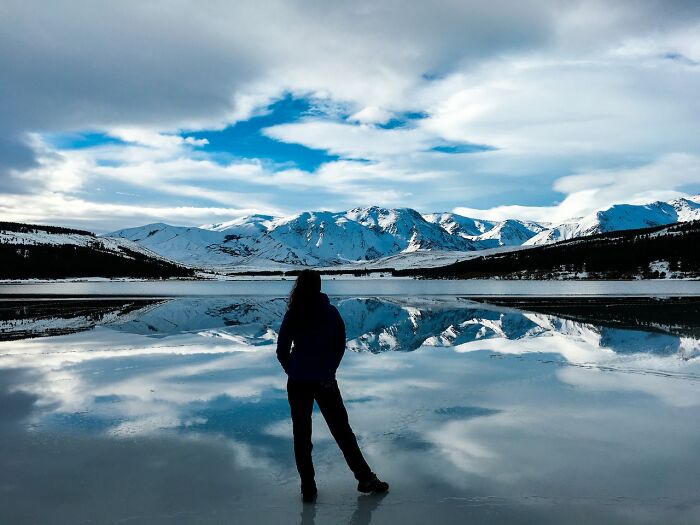 Argentina for nearly 10 years now. I got over the language barrier a long time ago, so that's not really part of my consideration.
Pros:
Argentines are fun. They're generally a sociable, informal people that love bantering and taking the p**s. They really have that Italian "buona vita" thing going on. In general, they appreciate/do art and aren't judgmental if you're a weirdo.
Great parties and good music scene (Not Argentine rock, which is not my thing, but here in Buenos Aires there are fairly diverse scenes running the gamut from Reggae to salsa to Afrobeat, jazz etc.) I am/was a musician so that's a fairly important to me.
Things are cheap if you are making money off the argentine economy, but if you aren't... (see cons) Medical stuff is very easy to pay for out of pocket.
Great European-style protections for workers if you are working for an Argentine employer.
Cons:
Financial instability. The Argentine peso has devalued massively over my time here and it shows no signs of stopping. If you are earning in pesos saving is totally impossible. This brings a lot of hardship to Argentine people.
The food is extremely boring. Things have improved over the last ten years since foodie-ism has caught on, but 90% of Argentine offerings are mediocre, over-cooked pastas and poorly executed, pseudo-european cuisine comprised of flour, cheese, meat and potatoes. The national palette trends bland and salty. Cooking for dinner parties is a nightmare since inevitably there is someone that won't eat onions, garlic, cumin or anything else flavorful you've tried to sneak in.
All these great European worker protections are worthless to you if you're not in a formal relationship with an Argentine employer. As a freelance musician and English teacher, I didn't really have any job security. Also, many people are employed off the books so my case was hardly extraordinary.
Argentina for nearly 10 years now. I got over the language barrier a long time ago, so that's not really part of my consideration.
Pros:
Argentines are fun. They're generally a sociable, informal people that love bantering and taking the p**s. They really have that Italian "buona vita" thing going on. In general, they appreciate/do art and aren't judgmental if you're a weirdo.
Great parties and good music scene (Not Argentine rock, which is not my thing, but here in Buenos Aires there are fairly diverse scenes running the gamut from Reggae to salsa to Afrobeat, jazz etc.) I am/was a musician so that's a fairly important to me.
Things are cheap if you are making money off the argentine economy, but if you aren't... (see cons) Medical stuff is very easy to pay for out of pocket.
Great European-style protections for workers if you are working for an Argentine employer.
Cons:
Financial instability. The Argentine peso has devalued massively over my time here and it shows no signs of stopping. If you are earning in pesos saving is totally impossible. This brings a lot of hardship to Argentine people.
The food is extremely boring. Things have improved over the last ten years since foodie-ism has caught on, but 90% of Argentine offerings are mediocre, over-cooked pastas and poorly executed, pseudo-european cuisine comprised of flour, cheese, meat and potatoes. The national palette trends bland and salty. Cooking for dinner parties is a nightmare since inevitably there is someone that won't eat onions, garlic, cumin or anything else flavorful you've tried to sneak in.
All these great European worker protections are worthless to you if you're not in a formal relationship with an Argentine employer. As a freelance musician and English teacher, I didn't really have any job security. Also, many people are employed off the books so my case was hardly extraordinary.
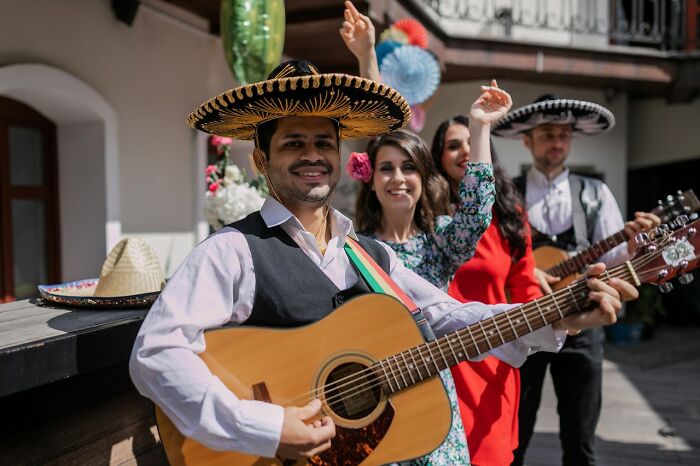 Moved to Mexico right before the pandemic last year.
Pros:
I'm getting less and less stressed out about having to go to the doctor. I didn't realize how much I subconsciously worried about getting sick or hurt in the States until I moved here, got an infection, spent like five minutes with a doctor at pharmacy, and paid ~ $15 for the meds I needed. I was floored. I knew before I moved that healthcare was less expensive here, but knowing it and experiencing it were somehow different.
The food.
The culture.
The COL.
The language. I studied Spanish in college, so I love speaking it all the time.
The people are friendly and helpful.
The weather. It gets sort of cold sometimes where I live, but nothing like back home, which is nice. I hate the cold.
Cons:
Paperwork. I am an impatient person, so dealing with bureaucracy and making endless copies of everything that proves I exist drives me crazy.
I live in a relatively safe city, but it's frustrating feeling the sense of unease about traveling to other parts of the country. I moved here with my Mexican boyfriend, which helps a lot because he understands this aspect of the country better than I do, but I miss being able to just take a road trip for no reason without worrying at all.
Moved to Mexico right before the pandemic last year.
Pros:
I'm getting less and less stressed out about having to go to the doctor. I didn't realize how much I subconsciously worried about getting sick or hurt in the States until I moved here, got an infection, spent like five minutes with a doctor at pharmacy, and paid ~ $15 for the meds I needed. I was floored. I knew before I moved that healthcare was less expensive here, but knowing it and experiencing it were somehow different.
The food.
The culture.
The COL.
The language. I studied Spanish in college, so I love speaking it all the time.
The people are friendly and helpful.
The weather. It gets sort of cold sometimes where I live, but nothing like back home, which is nice. I hate the cold.
Cons:
Paperwork. I am an impatient person, so dealing with bureaucracy and making endless copies of everything that proves I exist drives me crazy.
I live in a relatively safe city, but it's frustrating feeling the sense of unease about traveling to other parts of the country. I moved here with my Mexican boyfriend, which helps a lot because he understands this aspect of the country better than I do, but I miss being able to just take a road trip for no reason without worrying at all.
You forgot to mention that is super cheap and there's a lot of americans living in Mexico (Mexico city and other places, specially beaches) which is making the rents CRAZY, they are all staying in centrical places, which makes them way way more expensive, some rents in the usual places where american stays are even in USD, 1 USD equals 20 mexican pesos -sort of- minium wage here is 150(ish) per day (like 7.5 USD) americans are coming with their kind of income and it seems to be cheap af compared to the US but man, mexicans are suffering this a lot, they are gentrificating Mexico in a way we could not even imagine. Another con, Mexico is super racist with everyone that is not white, which is bs
 Germany-
Pro: Nice and cold
Con: Internet is absolute dog s**t
Germany-
Pro: Nice and cold
Con: Internet is absolute dog s**t
In rural areas internet is a crāp fest, that's a fact. Even in larger cities not all is well... And don't get me started on digitization
Expanding on what others have already posted. Germany: Pros: - Good public transportation, both in cities, throughout the country, as well as to other European countries. - Affordable Healthcare (decent quality as well) - Affordable cost of living (groceries and staples, housing can fluctuate towards a con depending on the city, but same goes for the US) - Decent wages - Overall more employment (therefore financial) and social stability (strong social services : parental leave is a big one for me currently during Corona). - Better work/Life balance and vacation time (currently receive 30 days excluding holidays and sick leave, minimum I believe is 24) - walk/bike ability: Most cities you don't need a car and are very pedestrian and public transport friendly, (though I just finally splurged and bought one due to Covid, and car insurance seems to be less than in the US). - Nature and green space accessibility (I live downtown and can be at the main station in 10-15 minutes, or deep in the forest behind the infamous Heidelberg castle..) - More “general“ financial and social equality, not as much visible extreme poverty/desperation - Dining / cafe/ beer garden culture ( you can eat and relax without being rushed to turnover tables). Plus, outdoor seating and more beautiful cityscapes. - Relatively good schools/ education/ cost of university (though the tiered system can be a negative, where a child’s future and educational pathway gets decided by grade 5) Cons: - Far from family and friends - Can be difficult difficult to integrate/ make friends outside of work. (Pro tip: join a club). Even then, most friends I gave tend to gave some international background.. Was not so bad for me because I’ve got my wife, so I always have had company. - Rigid work culture (switching industries is blasphemy). - bureaucracy (residence permits/ overseas birth abroads/ passport renewals/ driver’s license exchange/ taxes/ FBAR declarations etc.) and moving back to the US will be just as big of a headache to reestablish residency, obtain a DL, (credit score?!) etc.. - Housing (cities like Munich, Stuttgart, Frankfurt, and college towns like Heidelberg, Freiburg, etc. can be very expensive, but more importantly DIFFICULT to find availability).
In several countries americans and europeans visitors are treated better than their own citizens ...
I moved to Canada (specifically Vancouver) last year in summer and I have to say, it's been a change of pace: Pro's: 1. cohesive and affordable healthcare through the province. My company provides supplementary insurance as well to cover any additional out of pocket expenses 2. I feel safer on the streets. There are quite a few homeless people here in Vancouver, but they are mostly harmless and it's not a huge issue. 3. The handling of and policies revolving around the pandemic were quick to go into place and people also tend to follow recommendations. 4. It's a very environmentally progressive place (especially BC). Many people have good sustainability habits (everyone uses reusable bags here from the grocery and everyone tends to take public transit where possible). 5. Generally, people are pretty like-minded in terms of social liberties. Partially, this is why marijuana was legalized so quickly here. Of course there are provinces that are more conservative, but people generally believe in the welfare of others and are open to immigration (though geographically, it is not in the same predicament as the US with immigration from central and south America). Con's: 1. I drive to work (35 min drive) and Vancouver was not designed for large amounts of car traffic. Public transit to my work is not as good as it could be so I drive. There is also no highway that cuts through downtown Vancouver which accounts for lots of traffic on the roads. Canada's auto infrastructure is spotty since there is so much land that is uninhabited or unreachable. But other major Canadian cities don't have as big of an issue with this. 2. People are very cordial here, but many are not as willing to commit to deeper friendships besides being acquaintances. Its a pretty well-known phenomenon here in the PNW with the "Seattle Freeze" affecting Washingtonians as well. 3. Auto insurance is only available through the provincial government and the rates are high. It prevents alot of fraud, but having a single option does nothing for competition to lower cost. This also applies to liquor as the government distributes it and puts a high cost on liquor GST.
PEACE! My family and I moved to Malaysia in 2017. I used to suffer from racism (I'm black and Islamophobia. Living in Asia is better than in America! We may get stares once in a while but that better than being slurred at. And things are very cheap lol. We living in a boujee condo because of the cheapness LMAO
Moved to Mexico. Pros: The people hate trump as much as I do if not more. The cost of living is super low. Public healthcare (a private option is available if you can afford it). Eternal summer. The locals are incredibly friendly. The food is amazing. Acquiring resident status is VERY easy. Covid restrictions (masks, health screenings etc) are mandated by the government and no one argues. Mexico is not all poverty and remote desert as is commonly believed in many places in the US. Cons: the bugs (never been bitten by so many mosquitos in my life). The president actively and unapologetically advocates in favor of communism. While the people are friendly it is a legitimate concern (more so in certain states over others) that some people have ties to very dangerous people which makes it difficult to trust people.
I had cancer surgery and didn't have to pay for it, five paid weeks holiday, because of my age I don't pay for my medication and I can get on the EuroStar and be in Paris for brunch.
Moved to Argentina about 4 years ago. Moving back to the US sometime next year. Pros: Life is simpler and people seem to have a lot less stress overall. Cons: I could probably go on for a lifetime, but I'll highlight the most important ones. Systems, and the organization of those systems, in every day places such as banks, grocery stores and pretty much all public services is nearly non-existent. Even though the US can be a s**t show with a lot of stuff, we've got it wired as far as efficiency with public services, at least where I'm from. (I guess we have capitalism to thank for that. Also, sarcasm -- don't attack me lol). In the US we take a lot for granted, such as stable internet connection (as well as several businesses that offer free internet), great customer service, the list goes on. Here, you can pretty much never guarantee any of these things, and if you complain about them, nobody really does anything to solve the problem -- everyone seems to have a "oh, yeah, well that happens" sort of mindset. While the US certainly is far from perfect, I've found that the people who complain most about the US are the ones who haven't ever lived elsewhere -- especially in a place much less privileged. If I've learned anything from living abroad, it's to not take for granted some of the extreme privilege I have had growing up in the US, even with its f****d up government.
Pros: affordable healthcare, home ownership from one income, 30 vacation days, strong education system, good beer, good food, grocery bills are lower Cons: my in-laws live an hour away.
Moved to Italy. Cons- nothing is convenient. There are no 24 hour stores. Scheduled times are more of a suggestion. If a store opens at 10am it will actually open anywhere between 1015 to 1040. Personal protection laws make no sense to me. You are not allowed to attack home invaders Pro- driving laws are more lax. Easy traveling
I don't know where in Italy this OP lives, but to me it sounds confusing. I'm Italian by the way, and it's not properly this lax about timing of stores. Meet up with friends I agree, but stores? No, not exactly accurate. Also the home invaders laws. In Italy it's not easy to have a gun legally. And even in your home, even if you have one legally, you are not allowed to shot an intruder if there isn't an attack towards you. If you shot a thief that is unarmed and he dies or he is seriously injured, you are going to face so many troubles. But if he is armed it's considered legitimate. It's just that property is not as important as people in the eyes of the law.
Load More Replies... 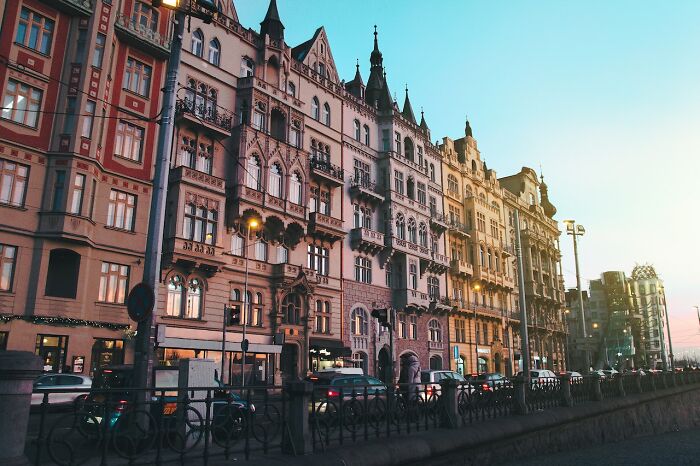 Living in the Czech Republic for about 12 years. Native Texan.
I met a czech girl while living in amsterdam and ended up moving here together. The immigration process for couples is pretty simple. :)
**Pros:**
1. No (or well, few) guns
2. Basically no crime at all
3. Basically no poverty at all
4. Very cheap health care ( have full everything for like $90/mo)
5. Europe at my fingertips
6. Cheap
7. Free college for my kids
8. Free and very good public schools
9. Amazing public transport
10. No insane conservative people
11. No insane religious people
12. Very lax drug laws (leads to very little crime)
13. Great social safety net
14. Lots of vacay time
15. Lots of maternity leave (like, up to 3 years LOL)
**Cons:**
1. The people, well, kind of suck (very unfriendly, very cold, quite rude, and couldn't care less about you, zero feeling of community in my experience)
2. Literally about 50 years behind the US in terms of real gender equality
3. Very little diversity (Whitey McWhitetown)
4. Food blows (local food is meat and potatoes basically, grocery quality is s**t)
5. Extreme homogeneity in society. There are basically no outliers here in any regard.
6. The culture is pretty dull. People are introverted and not generally very creative or interesting.
7. People drive like pieces of s**t.
8. Quite racist (not in the lynch mob way, more in the saying "n*gger" without knowing better way)
9. Very small minded culturally. The world outside the czech borders basically seems irrelevant to most people (f*****g LOL).
10. The language is extremely hard to learn, spoken by almost no one on the planet, and the deeper you go into it, just a little bit crappy. So many borrowed words are, not to put too fine a point on it, just incorrectly used. Everything just gets mashed into the language without any real regard for what the word actually means. It's like if you were adding words to your language but had never actually heard the word, or seen it used, and just sort of guessed at what it means. That's how czech integrates foreign words. It kind or makes czech feel like it was created by a bunch of sheep farmers. It probably was.
11. No open space or any way to escape other people at all. Even in the "country side" there is no such thing as a house without neighbors. I hate that.
12. The geography is really really dull.
Living in the Czech Republic for about 12 years. Native Texan.
I met a czech girl while living in amsterdam and ended up moving here together. The immigration process for couples is pretty simple. :)
**Pros:**
1. No (or well, few) guns
2. Basically no crime at all
3. Basically no poverty at all
4. Very cheap health care ( have full everything for like $90/mo)
5. Europe at my fingertips
6. Cheap
7. Free college for my kids
8. Free and very good public schools
9. Amazing public transport
10. No insane conservative people
11. No insane religious people
12. Very lax drug laws (leads to very little crime)
13. Great social safety net
14. Lots of vacay time
15. Lots of maternity leave (like, up to 3 years LOL)
**Cons:**
1. The people, well, kind of suck (very unfriendly, very cold, quite rude, and couldn't care less about you, zero feeling of community in my experience)
2. Literally about 50 years behind the US in terms of real gender equality
3. Very little diversity (Whitey McWhitetown)
4. Food blows (local food is meat and potatoes basically, grocery quality is s**t)
5. Extreme homogeneity in society. There are basically no outliers here in any regard.
6. The culture is pretty dull. People are introverted and not generally very creative or interesting.
7. People drive like pieces of s**t.
8. Quite racist (not in the lynch mob way, more in the saying "n*gger" without knowing better way)
9. Very small minded culturally. The world outside the czech borders basically seems irrelevant to most people (f*****g LOL).
10. The language is extremely hard to learn, spoken by almost no one on the planet, and the deeper you go into it, just a little bit crappy. So many borrowed words are, not to put too fine a point on it, just incorrectly used. Everything just gets mashed into the language without any real regard for what the word actually means. It's like if you were adding words to your language but had never actually heard the word, or seen it used, and just sort of guessed at what it means. That's how czech integrates foreign words. It kind or makes czech feel like it was created by a bunch of sheep farmers. It probably was.
11. No open space or any way to escape other people at all. Even in the "country side" there is no such thing as a house without neighbors. I hate that.
12. The geography is really really dull.
Dull geography in Czech? 0.0 It seems you enjoy the benefits but have a serious superiority complex towards the people and country in general...
It seems as if this person was very unhappy for 12 years. What a pity.
The best perk of American citizenship is the passport. I've lived/worked in Italy, Taiwan, Afghanistan, Germany and Bahrain over the years and the absolute best part is the [Foreign Earned Income Tax Exclusion](https://www.irs.gov/individuals/international-taxpayers/foreign-earned-income-exclusion), which was $106,000 USD for 2019. I find Europe boring, however. Also, German inter-personal culture can be interpreted as stern, blunt, cold, and rude (small-talk is not efficient). Germans generally do not appreciate my sense of humor, etc. Lots of paperwork for everything. Afghanistan was cool - beautiful country, but the rockets get old after a while. Taiwan, Philippines, Hong Kong, Thailand are incredible. Asia is the future. The Middle East (Bahrain, Dubai, Qatar, etc.) is incredibly lavish, and an amazing mixing pot of people from around the world. Time will tell if they can diversify enough to survive the end of oil (whenever that happens).
"I find Europe boring." What a ridiculous comment. Another person who seems to think Europe is a country. I don't see how anyone can possibly say they find a whole entire continent boring. Europe is made up of many countries that all have different cultures, traditions and beliefs. I'm sure there are parts of the US that aren't particularly exciting.
Or the not so smart - at least i read that as a quote somewhere.
Load More Replies...Pro- You get a well-rounded education, learn many languages,. The list goes on. Con- They all think you're those hardcore rednecks, Trump supporter or a Karen. (Please note: I have no opinion if you're a Trump supporter or not. I'm stating from what I've seen, a lot of people where I live are not pro-Trump)
I haven't read the entire list, but I'm going to say, here and now that "Accessible/universal/affordable healthcare" features at or near the top of every single pro list. The rest will be a mixed bag, but I bet I'm right about the healthcare thing
Yep. First thing pretty much everyone mentioned. Makes me wonder how bad it is in the USA
Load More Replies...I'm missing a lot more diversity in the countries listed. These were all the same
well Americans are used to certain things so they will go to other first-world countries, to a large extent, except the Uganda guy.
Load More Replies...Funny how "we're the best country in the world" turns out not to be true when you see other countries. (Not suggesting all Americans believe that, but it's a SUPER common theme in your media). Also I love the person who moved to France and finally understood why Europeans moan about the heat.
I wish I could hear more about the actual home/living costs vs how much you make. I had a friend who moved to Uruguay 15 years ago and she talked a lot about how you could afford a large home there for like 50K. But they sold their home here for like 300K and used it to move there to do that. The money they made working was nothing so unless you move with significant money, you'll live about the same as the locals do. She also said food was fairly easy to get but they have more open markets than grocery stores, so you have to make more trips to get everything you need. I have nothing holding me here in the US except the fear that the conveniences I've grown to love like grocery stores, good internet and safety won't be there. I could probably find remote work as I work from home 4 out of 5 days now. I pay so much in rent right now and I hate where I live. If I can find a house somewhere cheaper and retire early that would be amazing.
If you can work remote then the world is your oyster. Here in France even - you can buy a house for under 70k in the country side. Pretty sure Italy has some nice homes for less and don't forget eastern Europe. They have nice houses and have all you need too. There are a few great internet sites for ex pats - visit those and put your questions on those sites.
Load More Replies...Number 46, living in Alberta - come east to Newfoundland. Trust me - friendly people, decent minimum wage, deeply Irish (read: friendly) culture, and the landscape is incredibly beautiful.
Hahaha! The "cons" of leaving the US? As if BP would ever let THAT be posted! We know you mindingus or whatever you call yourself. You hate us cuz you ain't is. Not even reading this undoubtedly stupid thread.
I haven't read the entire list, but I'm going to say, here and now that "Accessible/universal/affordable healthcare" features at or near the top of every single pro list. The rest will be a mixed bag, but I bet I'm right about the healthcare thing
Yep. First thing pretty much everyone mentioned. Makes me wonder how bad it is in the USA
Load More Replies...I'm missing a lot more diversity in the countries listed. These were all the same
well Americans are used to certain things so they will go to other first-world countries, to a large extent, except the Uganda guy.
Load More Replies...Funny how "we're the best country in the world" turns out not to be true when you see other countries. (Not suggesting all Americans believe that, but it's a SUPER common theme in your media). Also I love the person who moved to France and finally understood why Europeans moan about the heat.
I wish I could hear more about the actual home/living costs vs how much you make. I had a friend who moved to Uruguay 15 years ago and she talked a lot about how you could afford a large home there for like 50K. But they sold their home here for like 300K and used it to move there to do that. The money they made working was nothing so unless you move with significant money, you'll live about the same as the locals do. She also said food was fairly easy to get but they have more open markets than grocery stores, so you have to make more trips to get everything you need. I have nothing holding me here in the US except the fear that the conveniences I've grown to love like grocery stores, good internet and safety won't be there. I could probably find remote work as I work from home 4 out of 5 days now. I pay so much in rent right now and I hate where I live. If I can find a house somewhere cheaper and retire early that would be amazing.
If you can work remote then the world is your oyster. Here in France even - you can buy a house for under 70k in the country side. Pretty sure Italy has some nice homes for less and don't forget eastern Europe. They have nice houses and have all you need too. There are a few great internet sites for ex pats - visit those and put your questions on those sites.
Load More Replies...Number 46, living in Alberta - come east to Newfoundland. Trust me - friendly people, decent minimum wage, deeply Irish (read: friendly) culture, and the landscape is incredibly beautiful.
Hahaha! The "cons" of leaving the US? As if BP would ever let THAT be posted! We know you mindingus or whatever you call yourself. You hate us cuz you ain't is. Not even reading this undoubtedly stupid thread.

 Dark Mode
Dark Mode 

 No fees, cancel anytime
No fees, cancel anytime 






